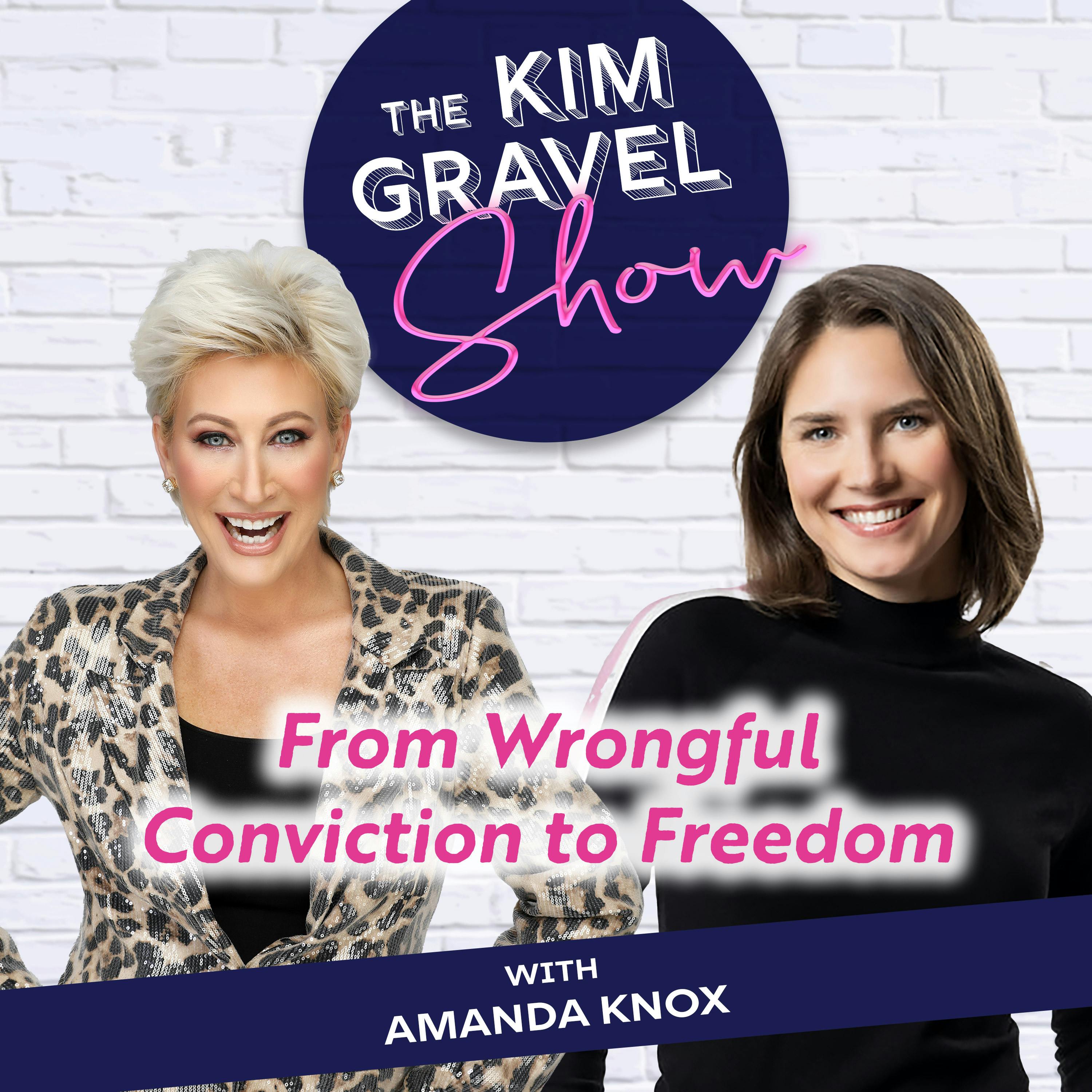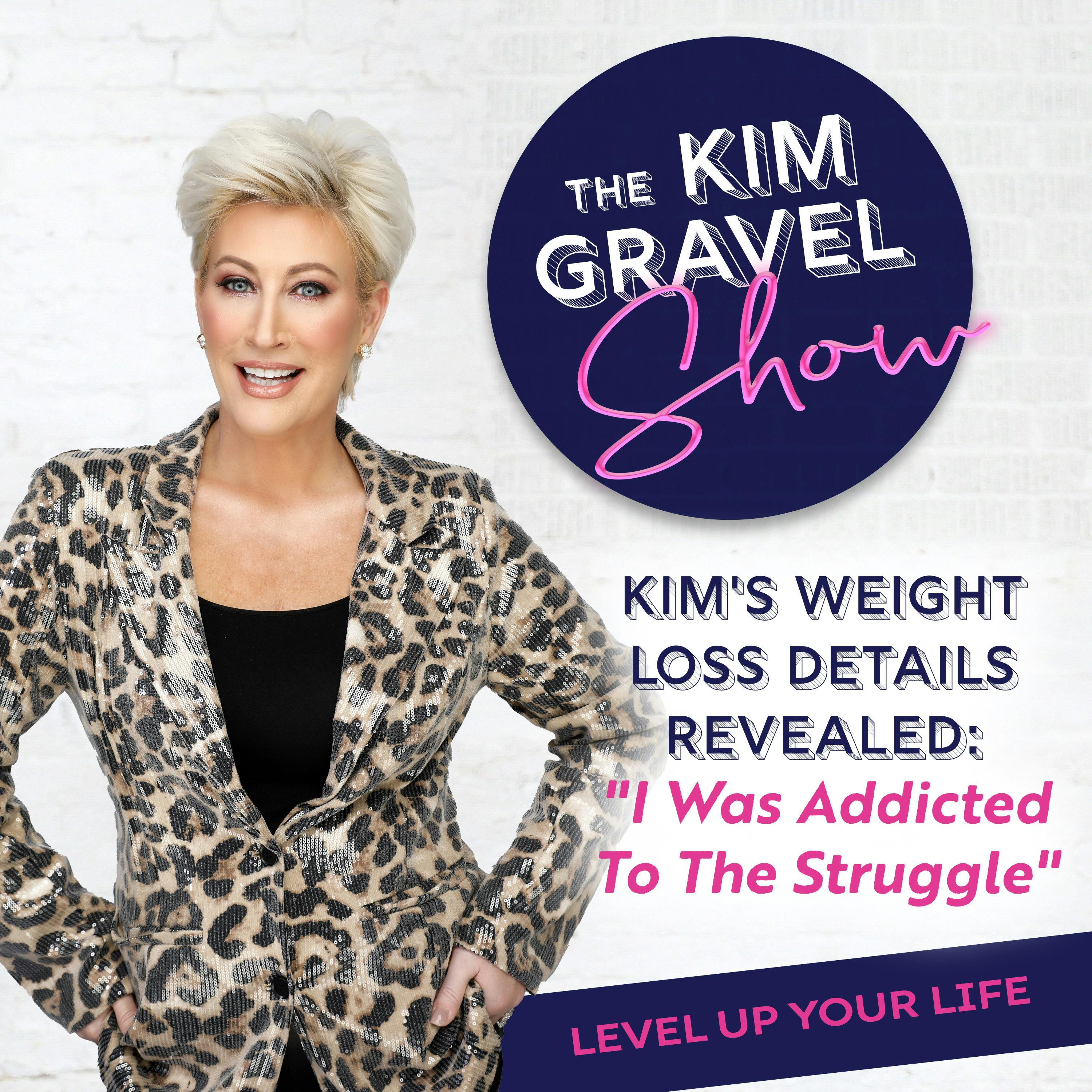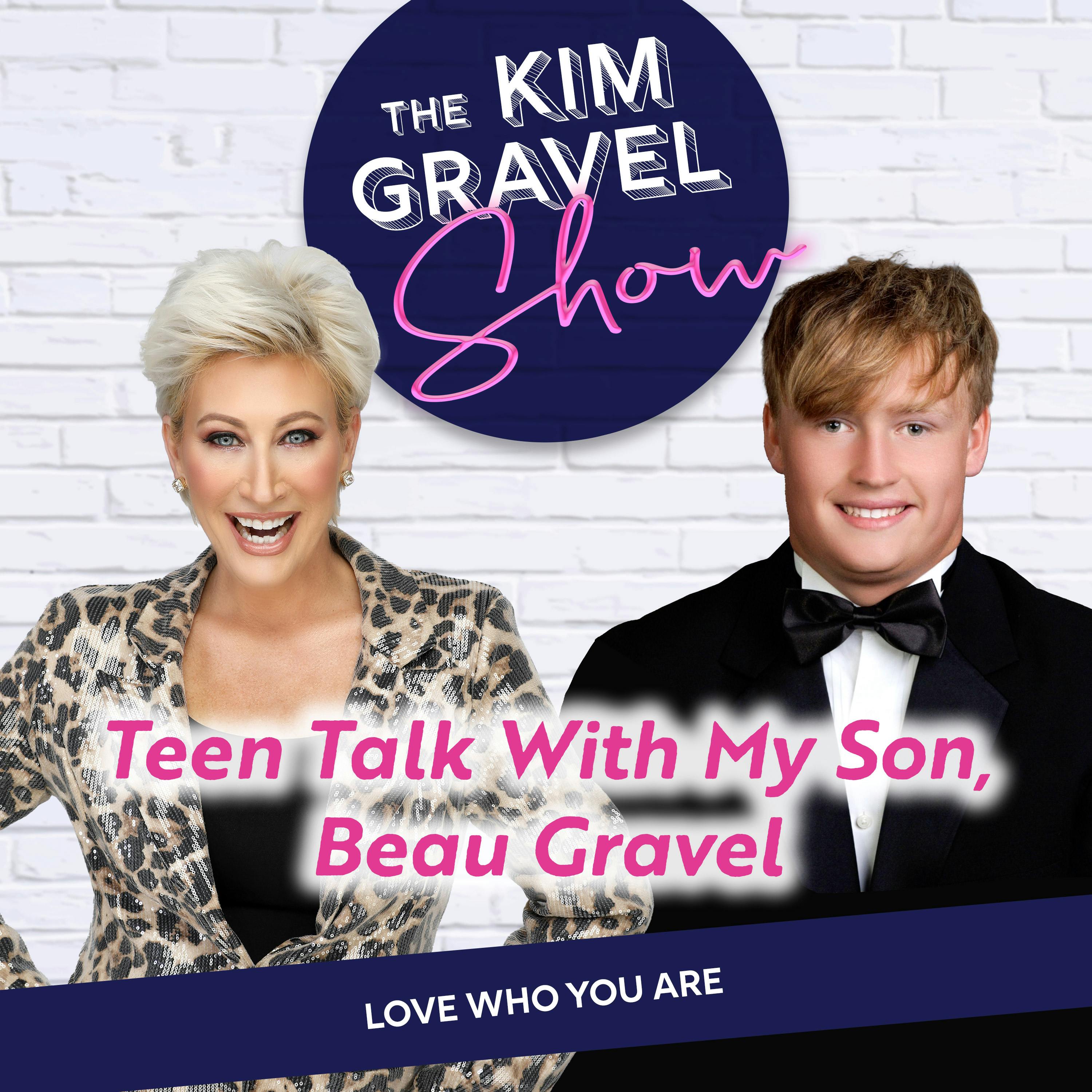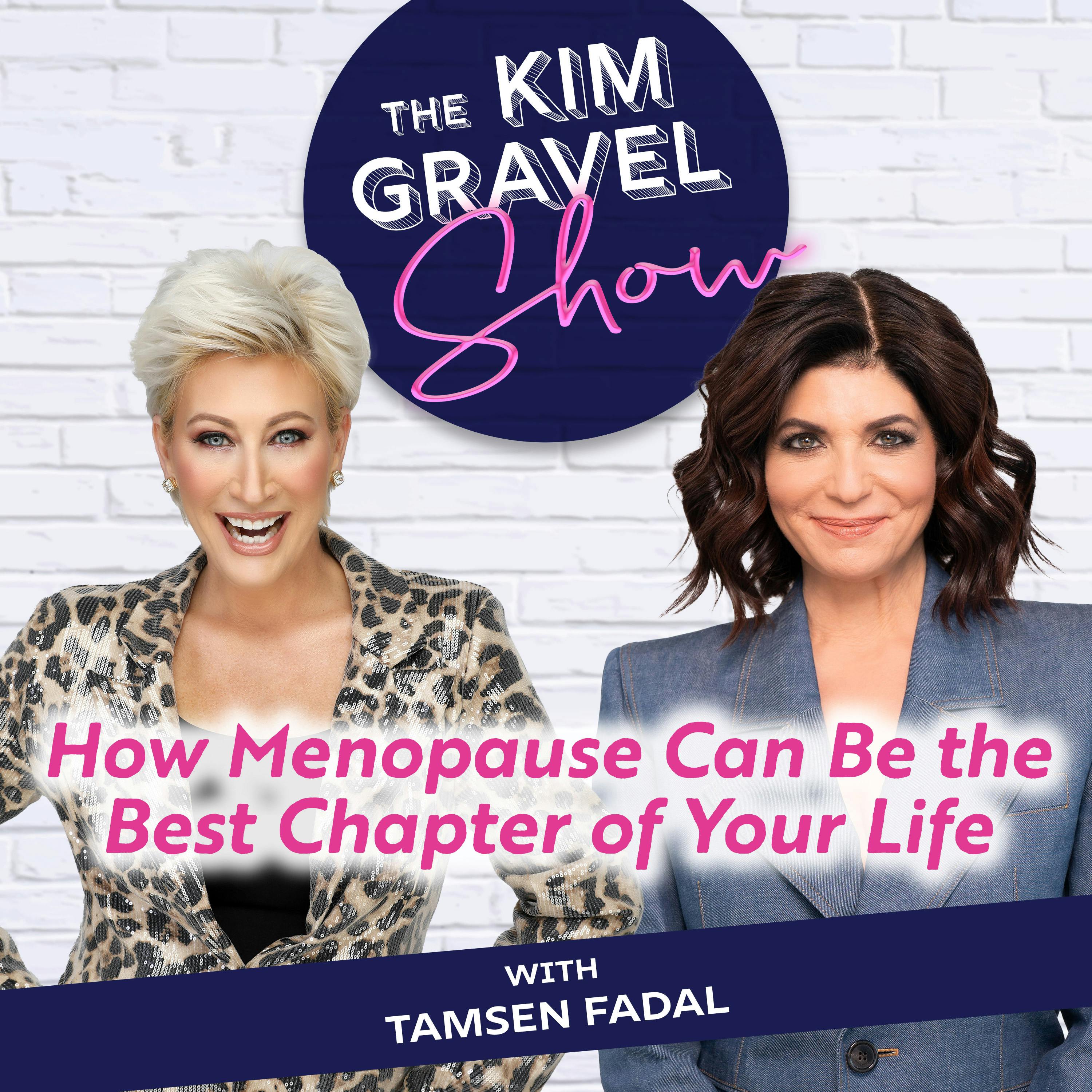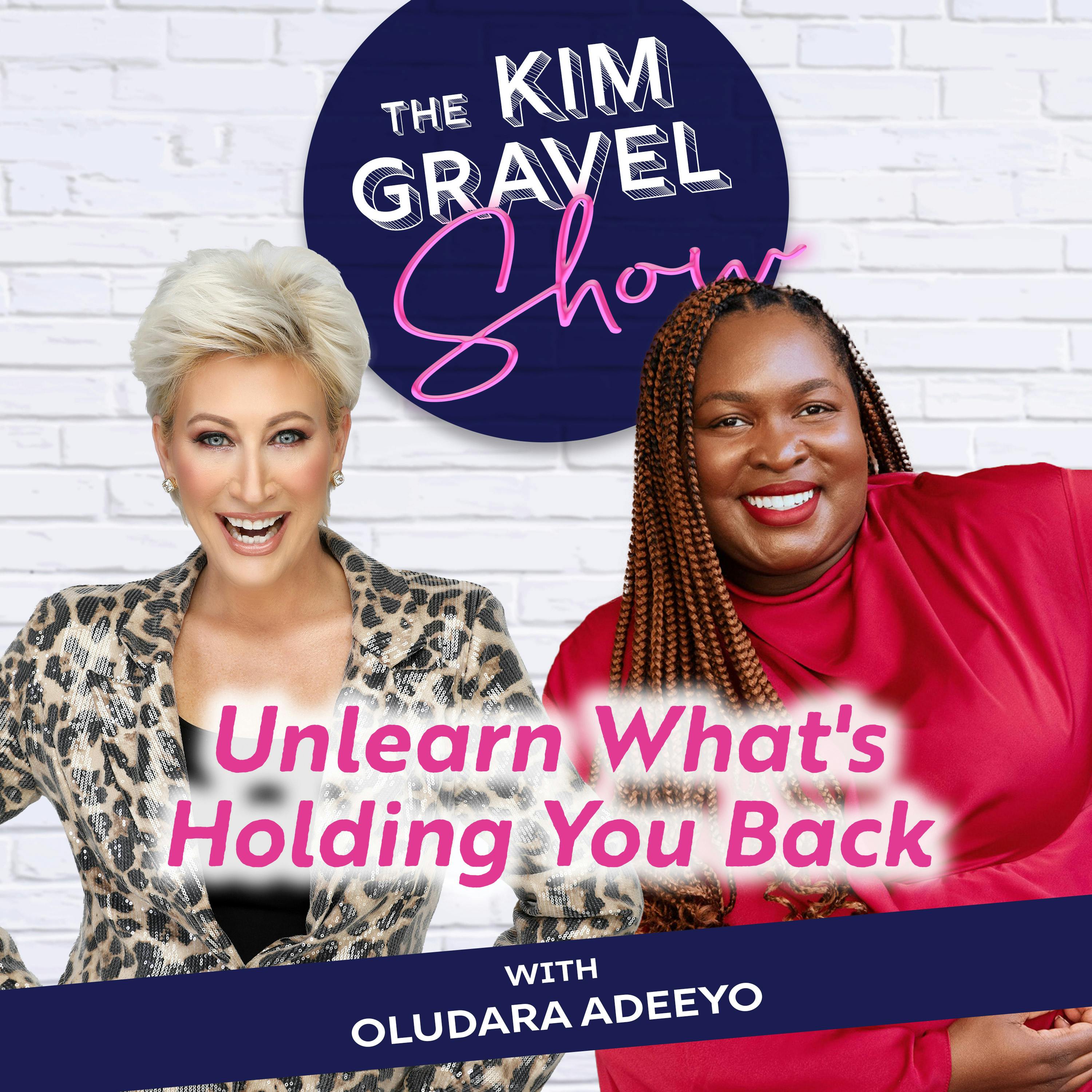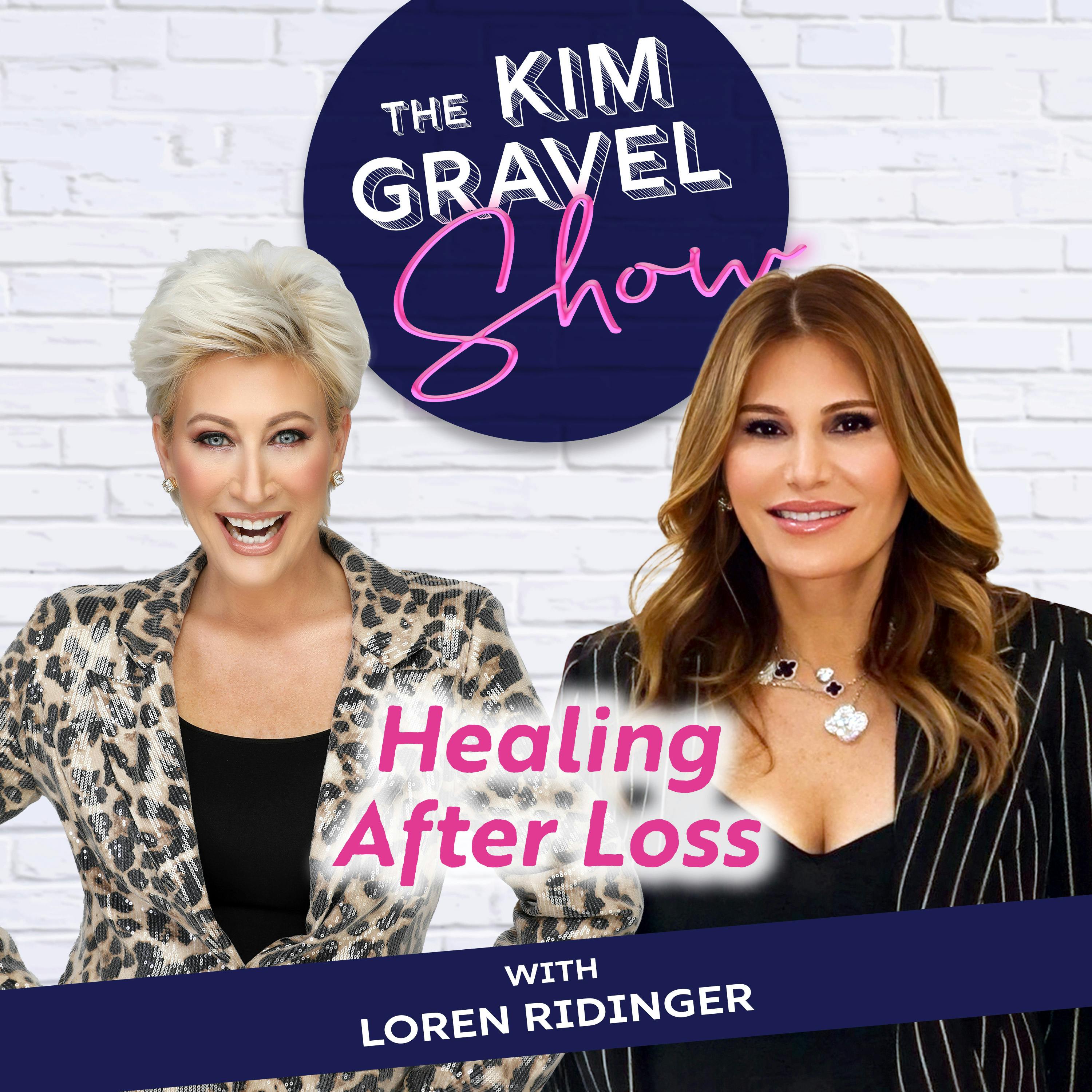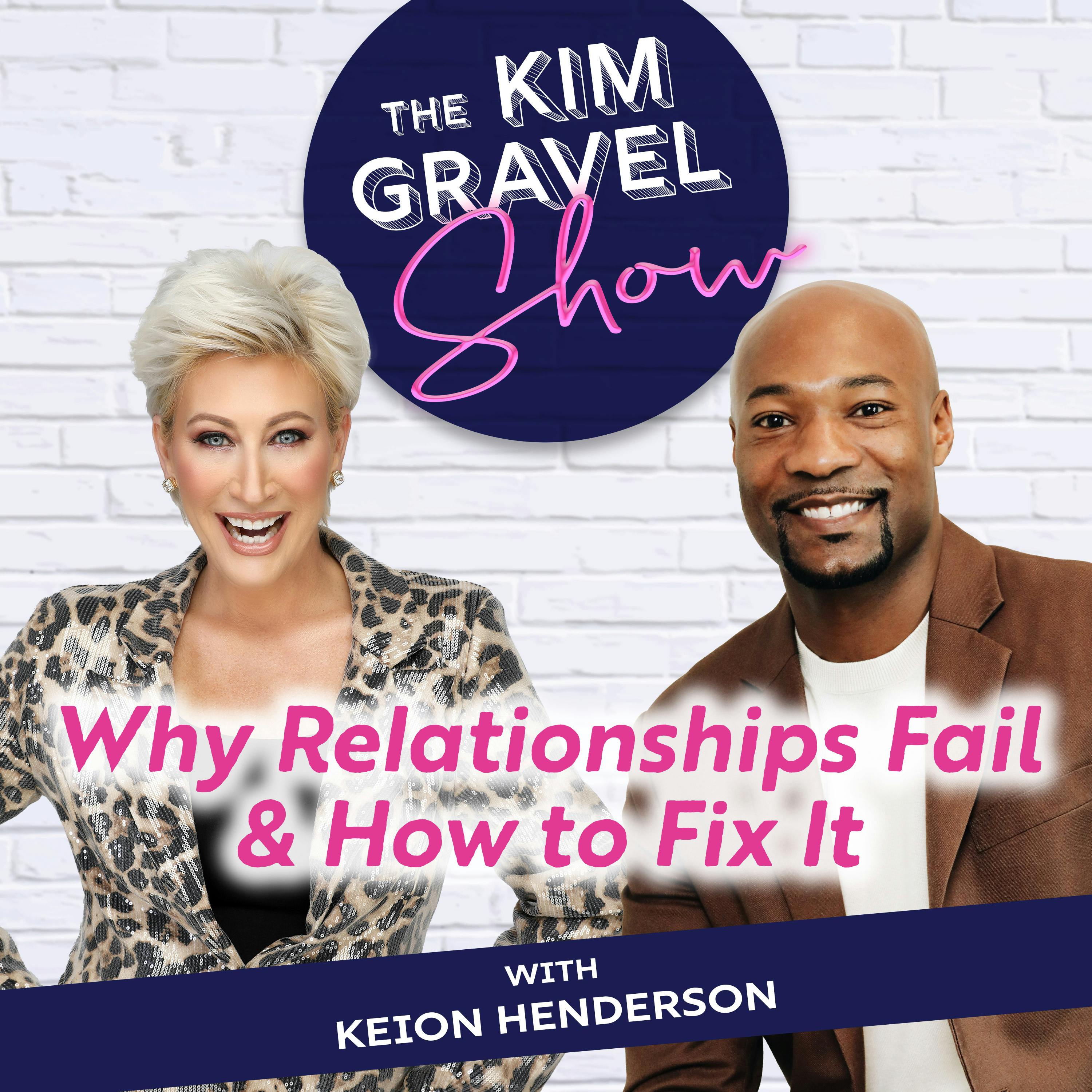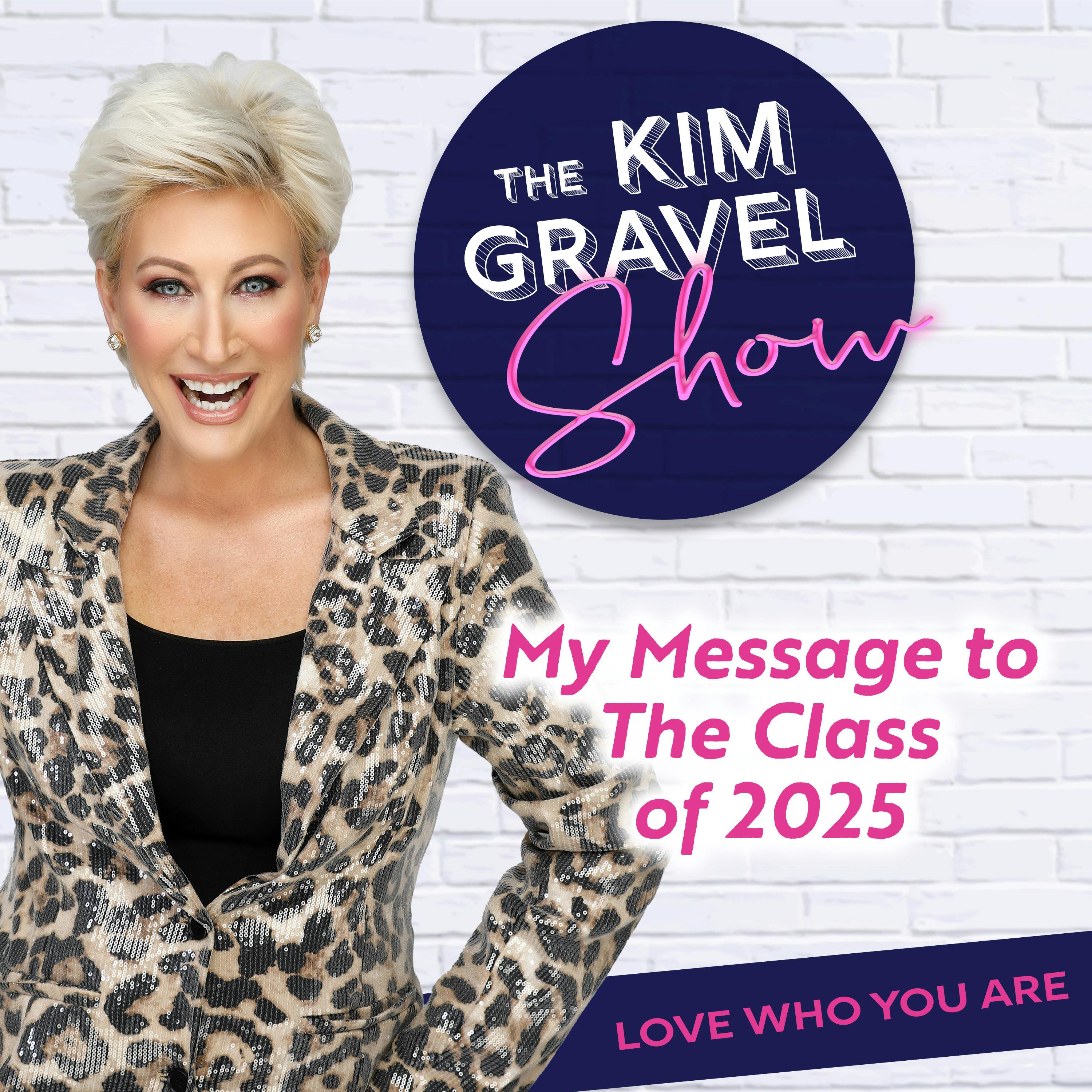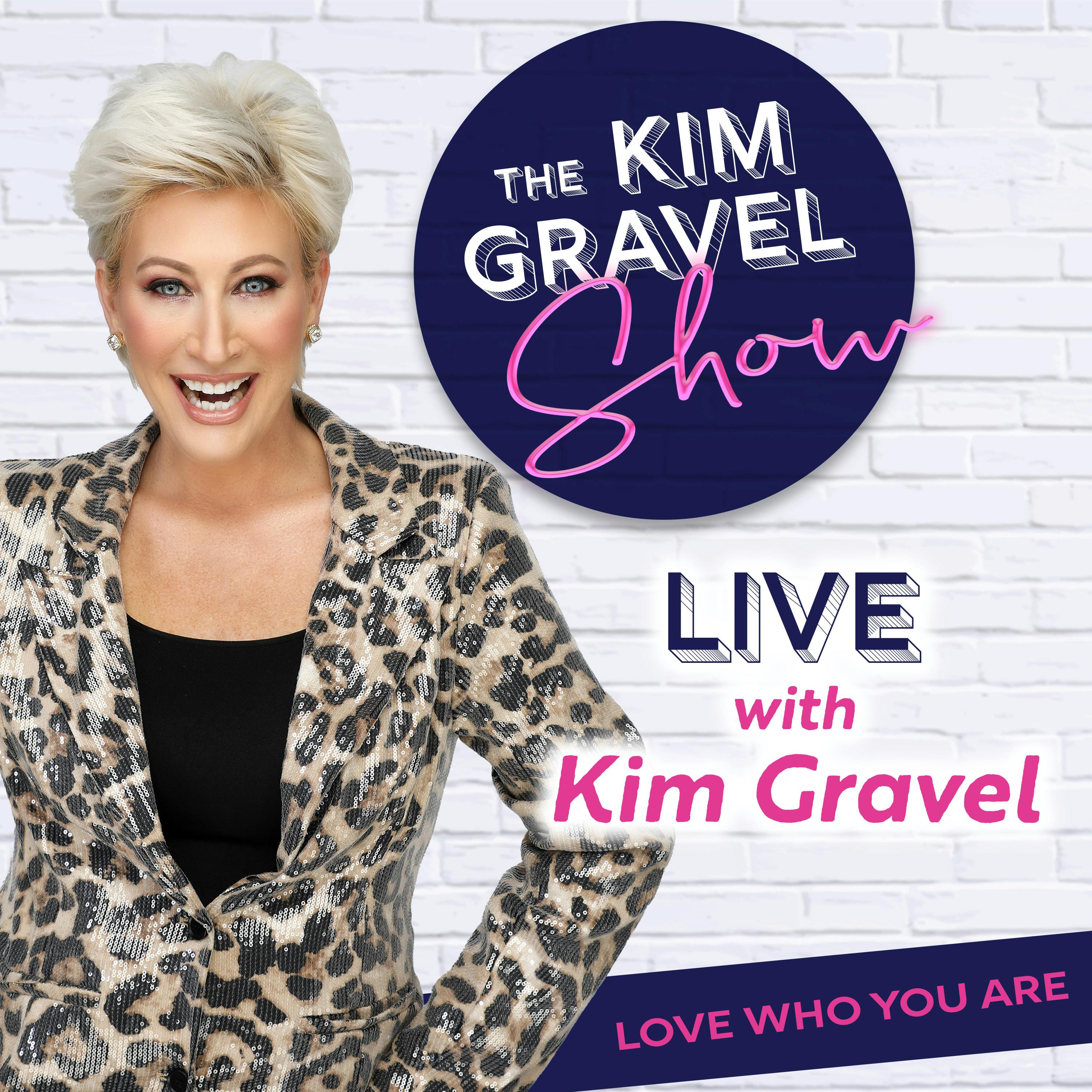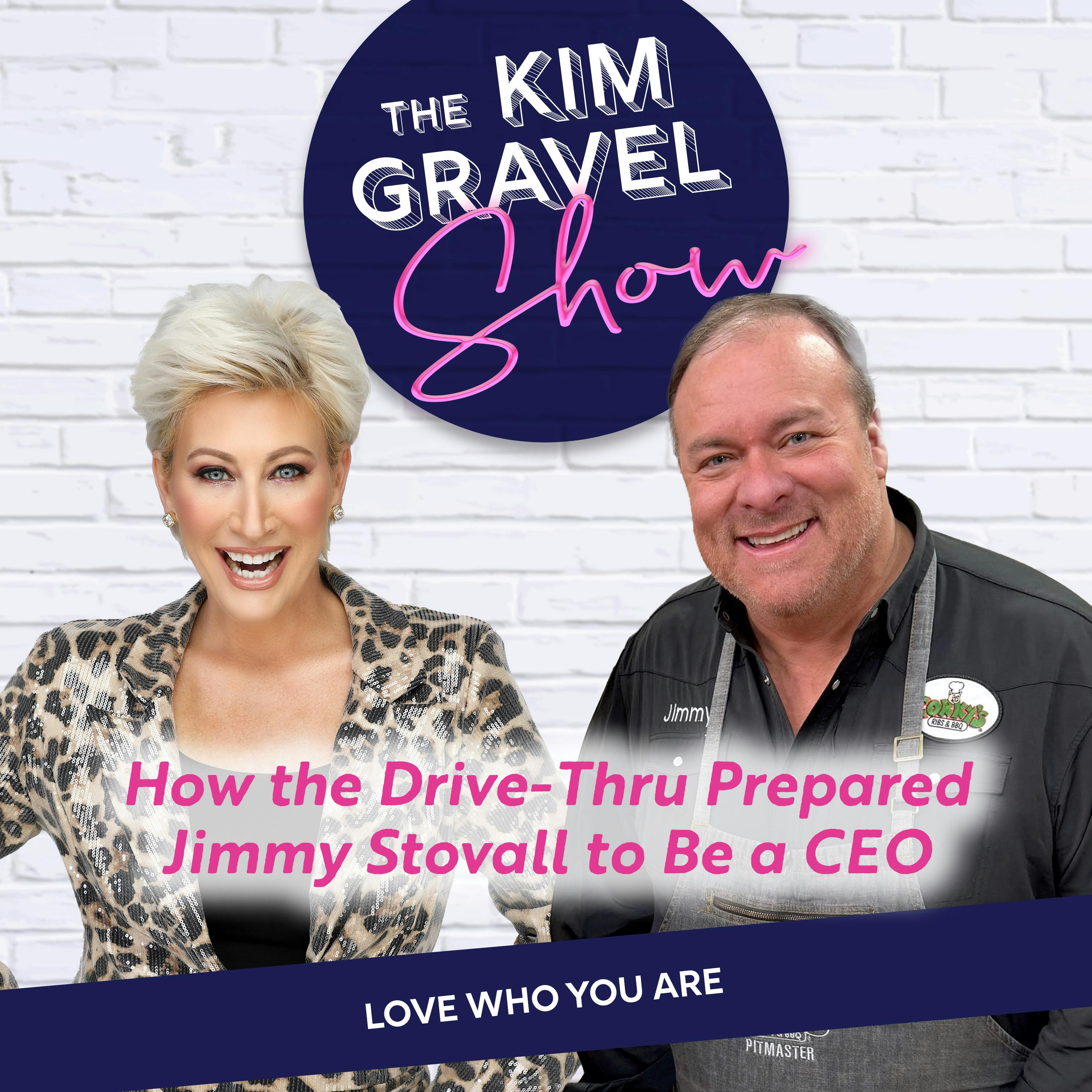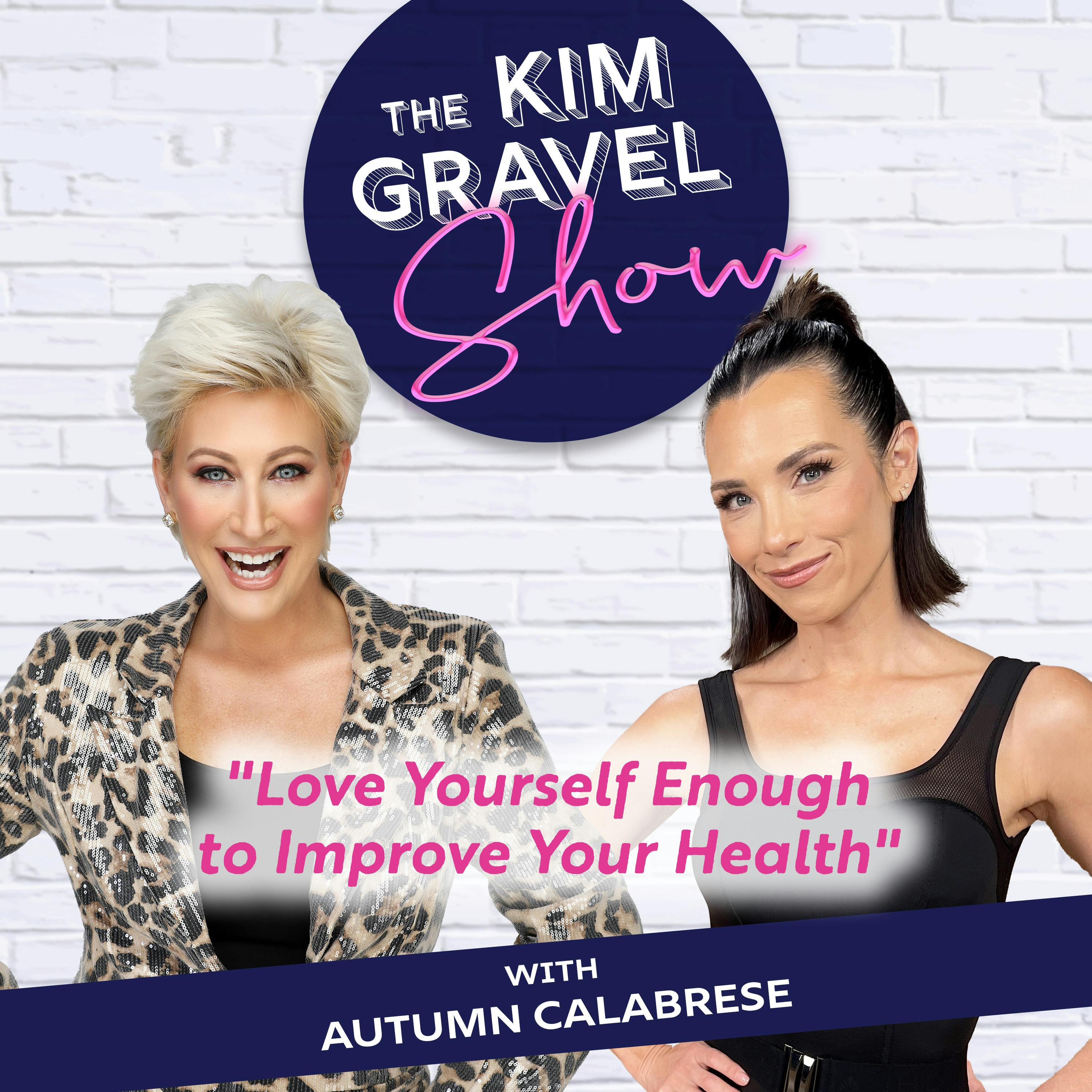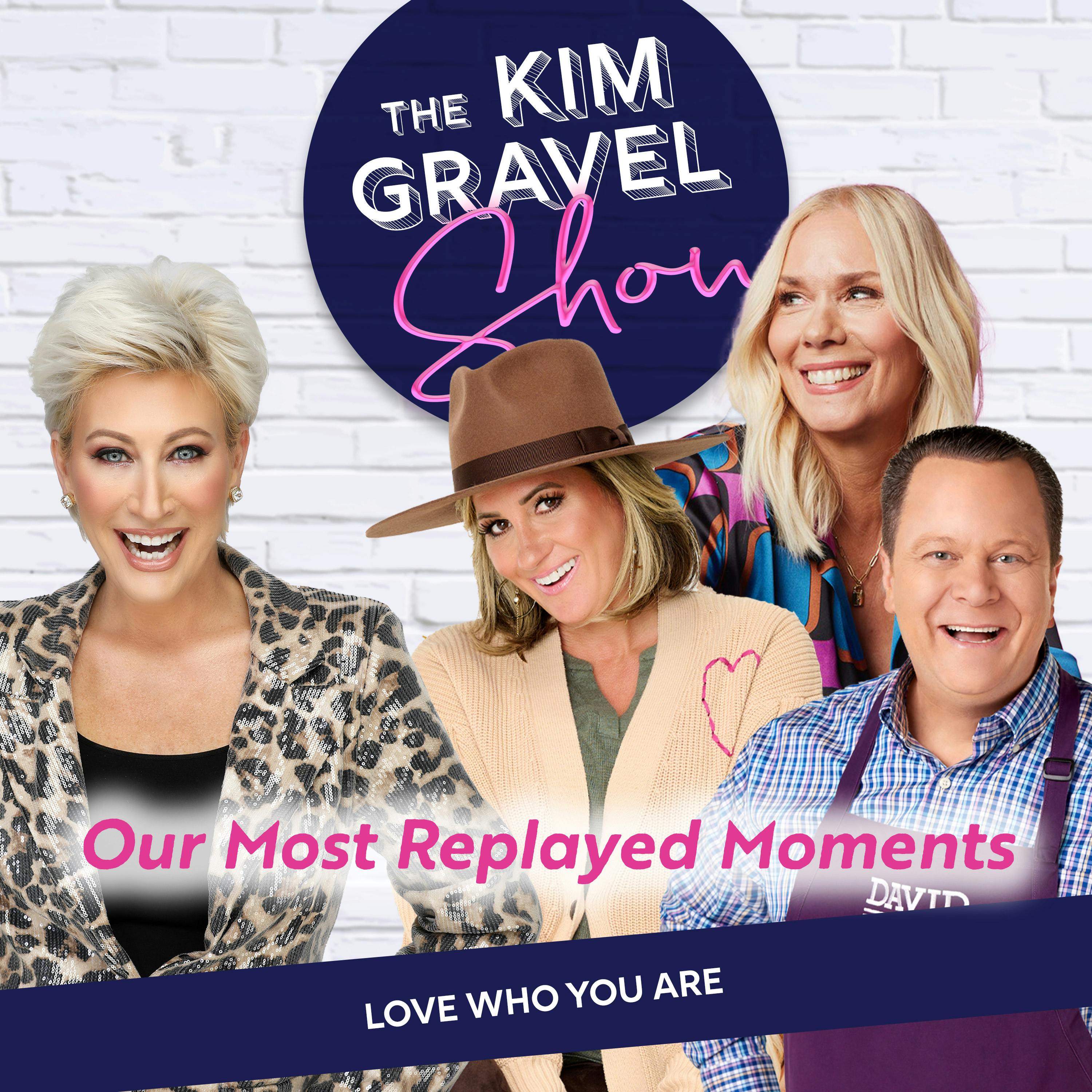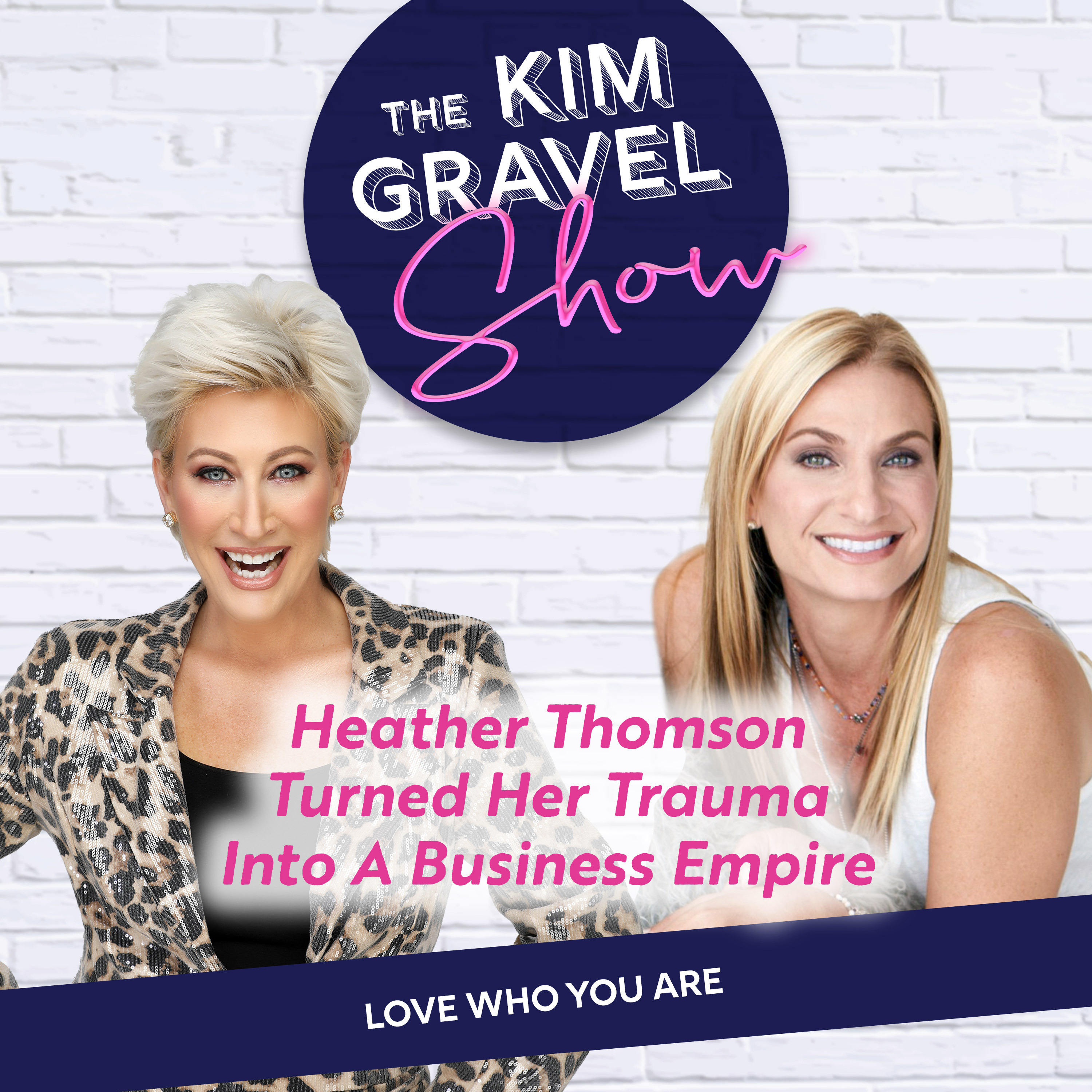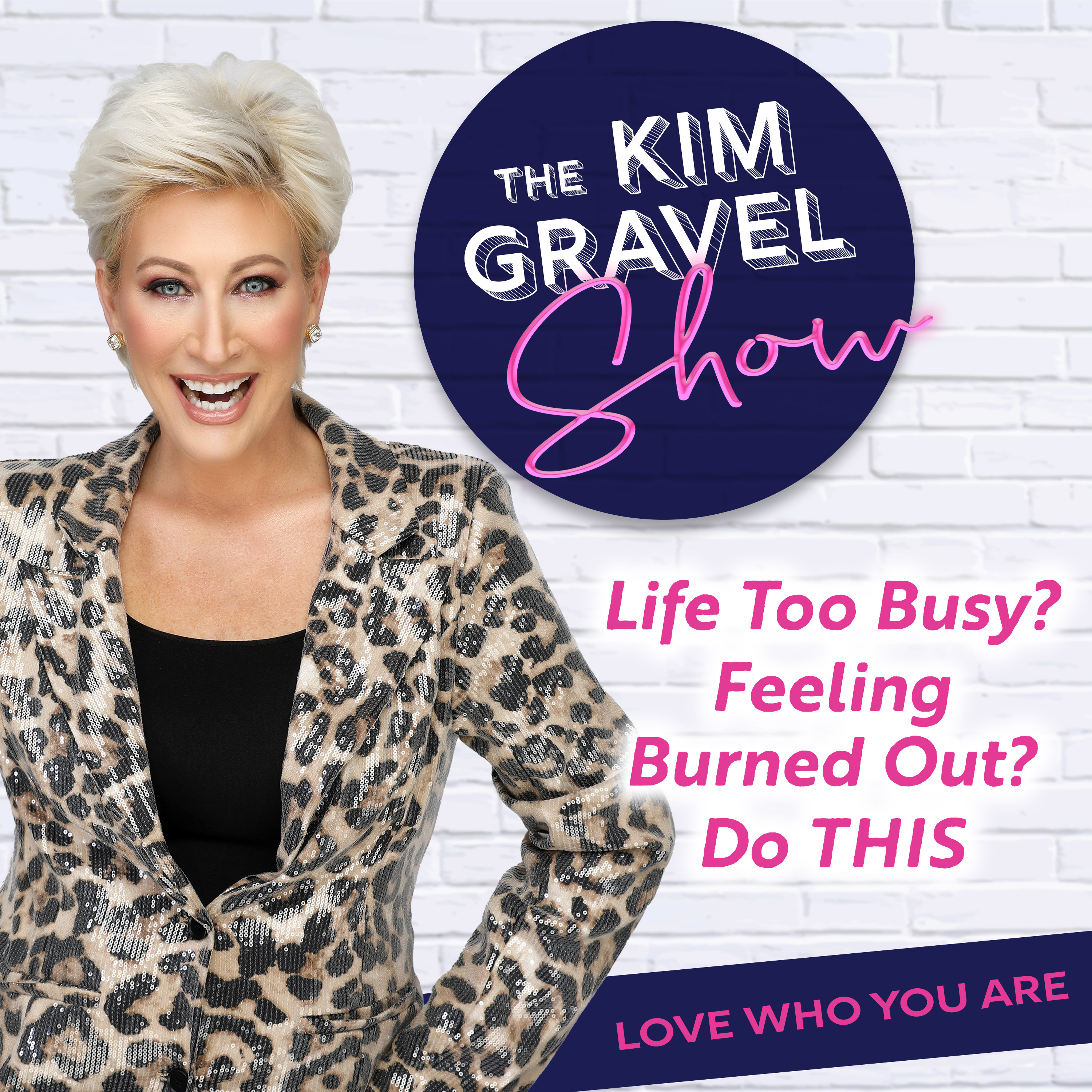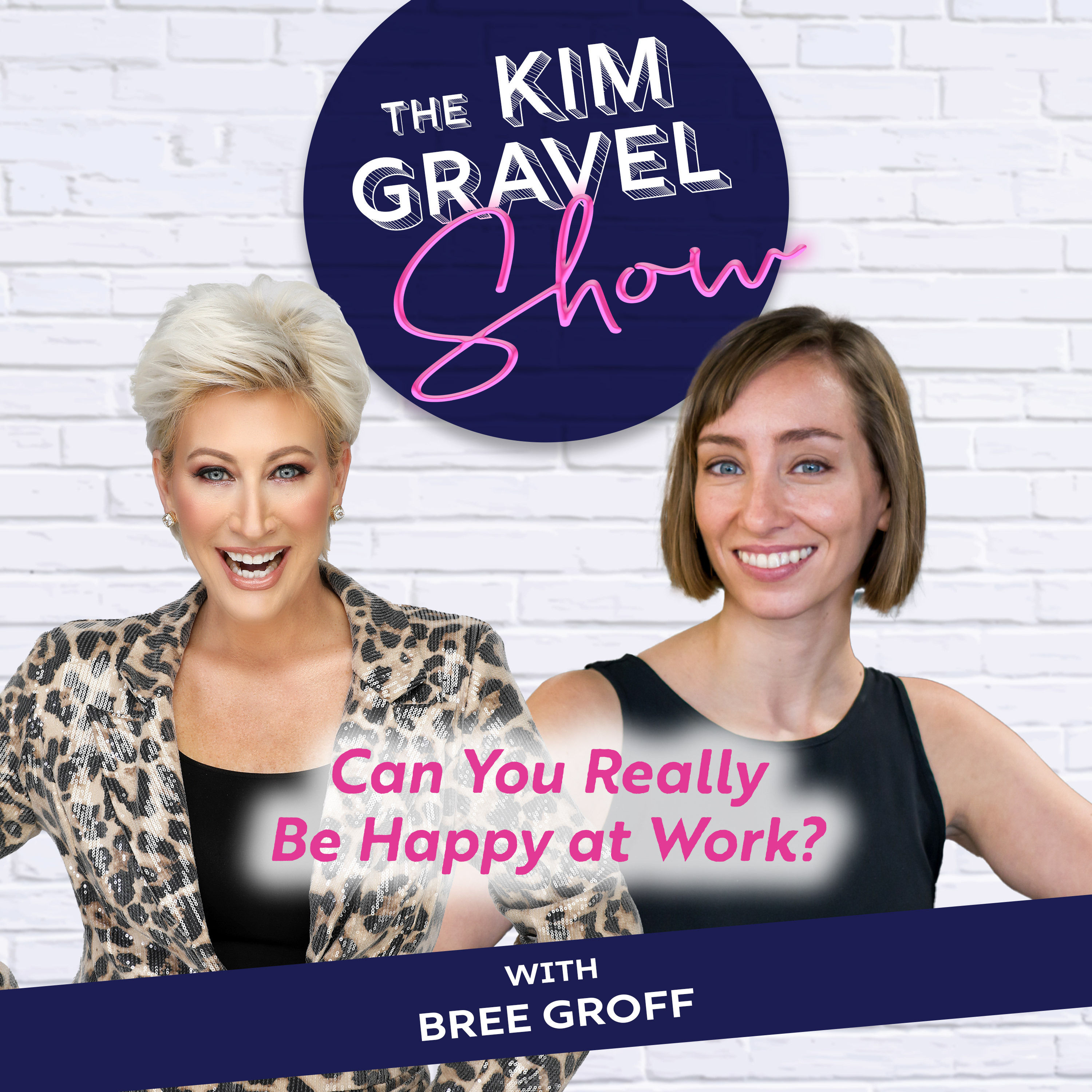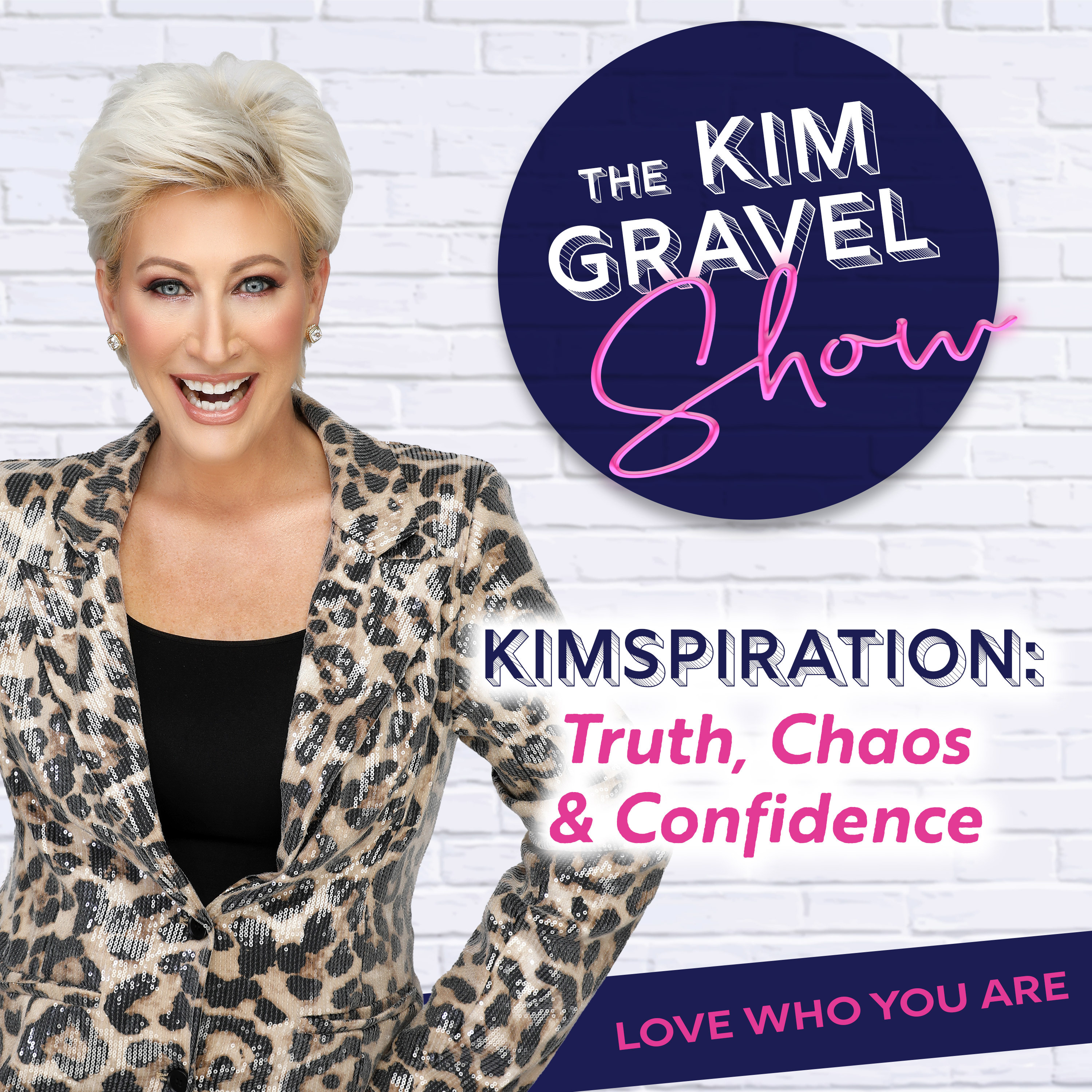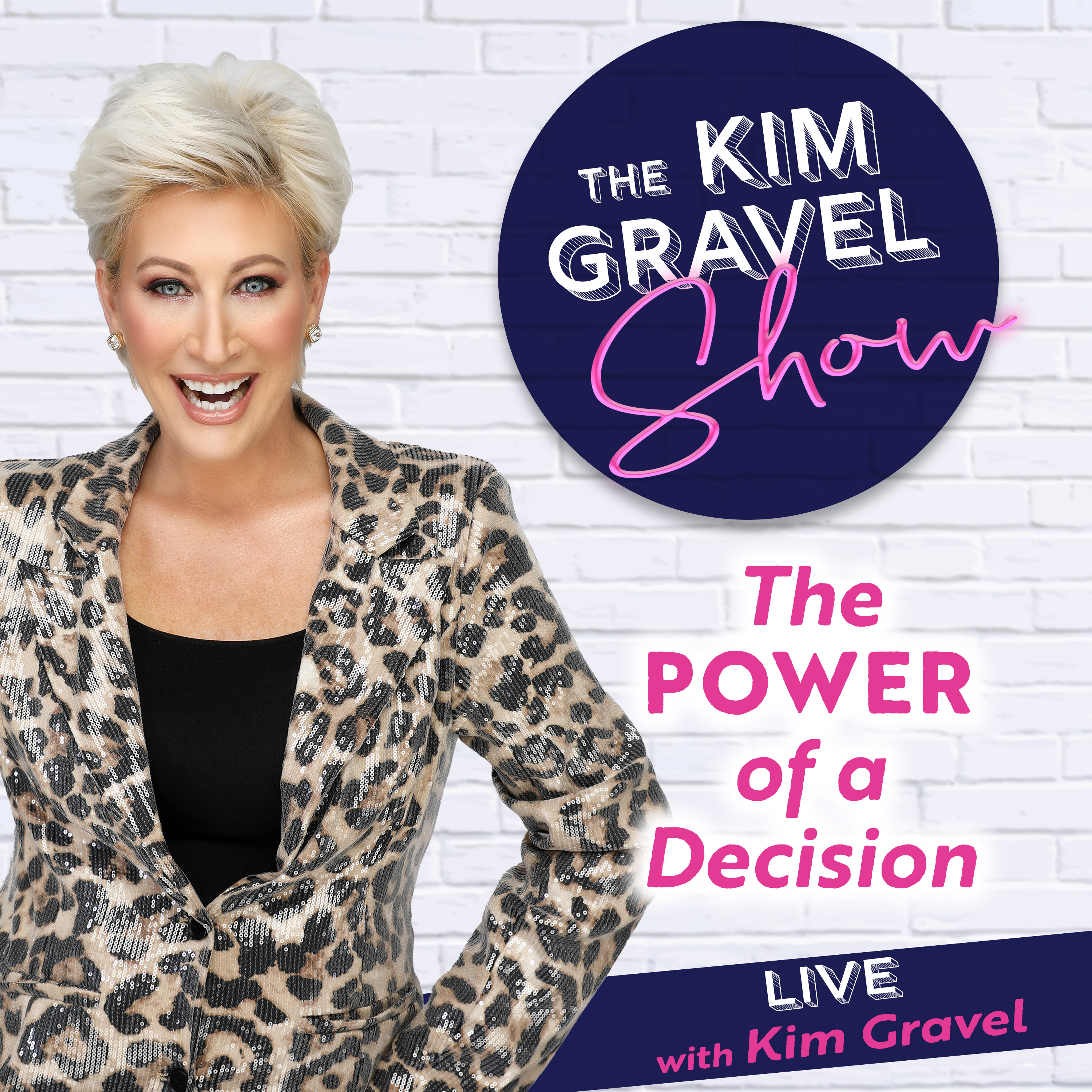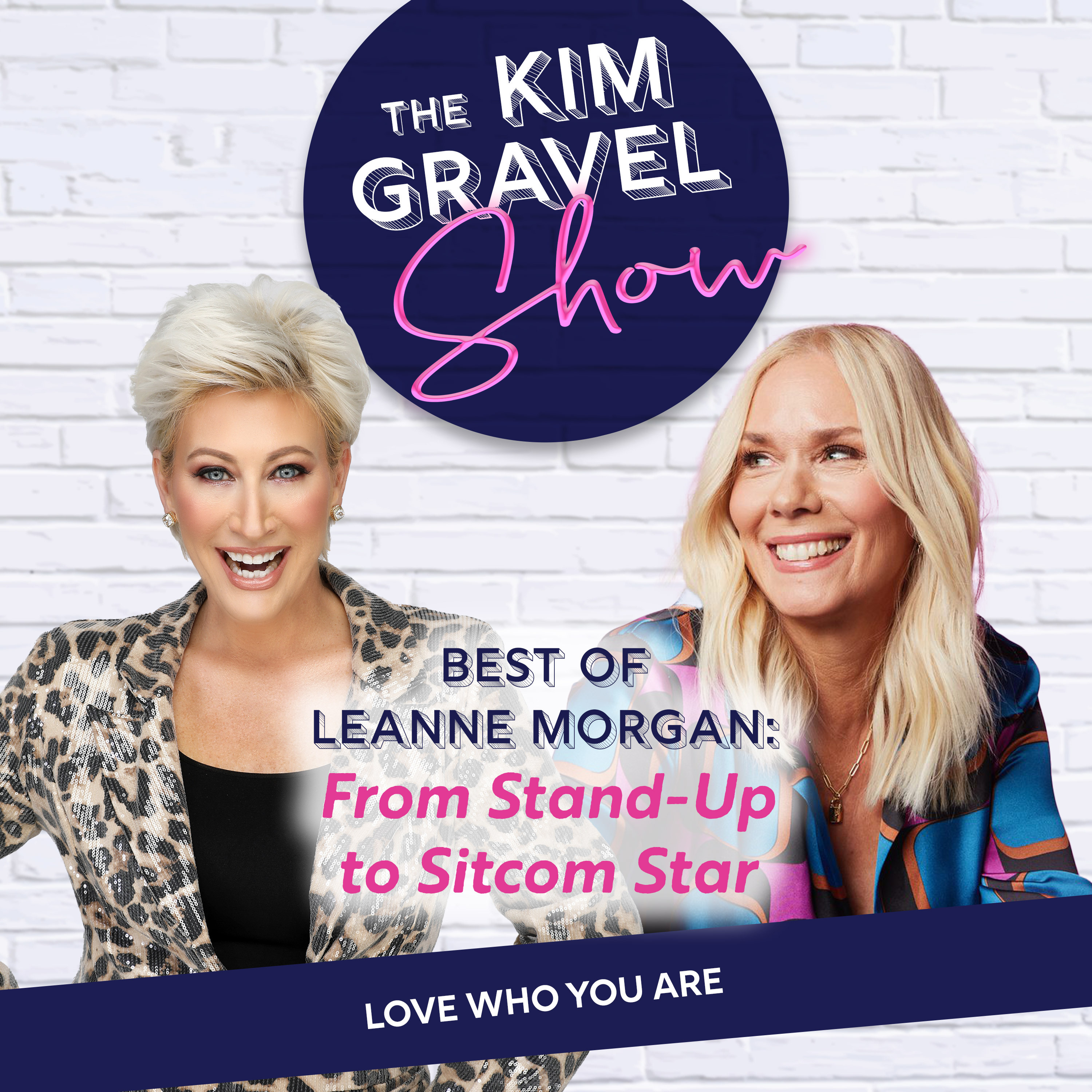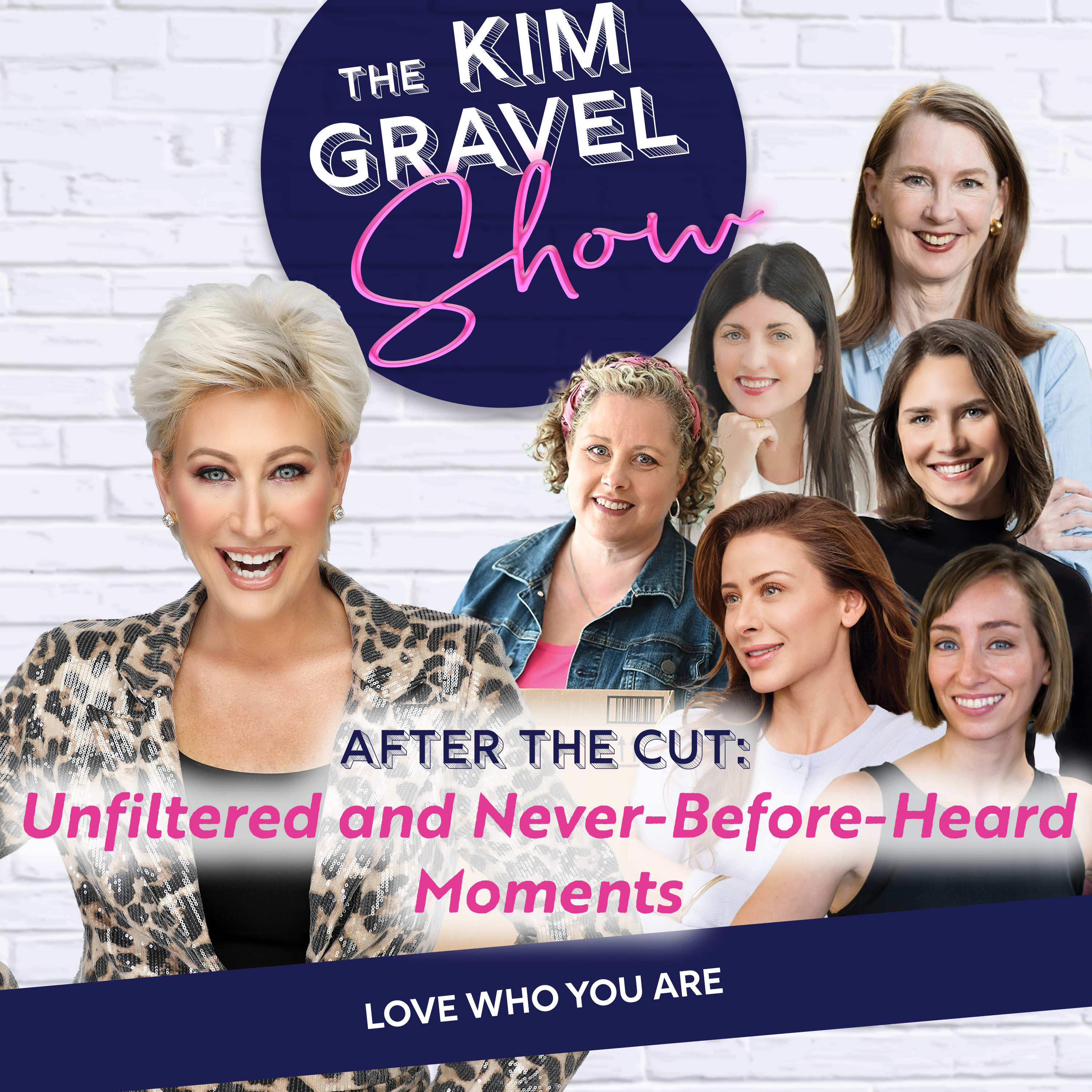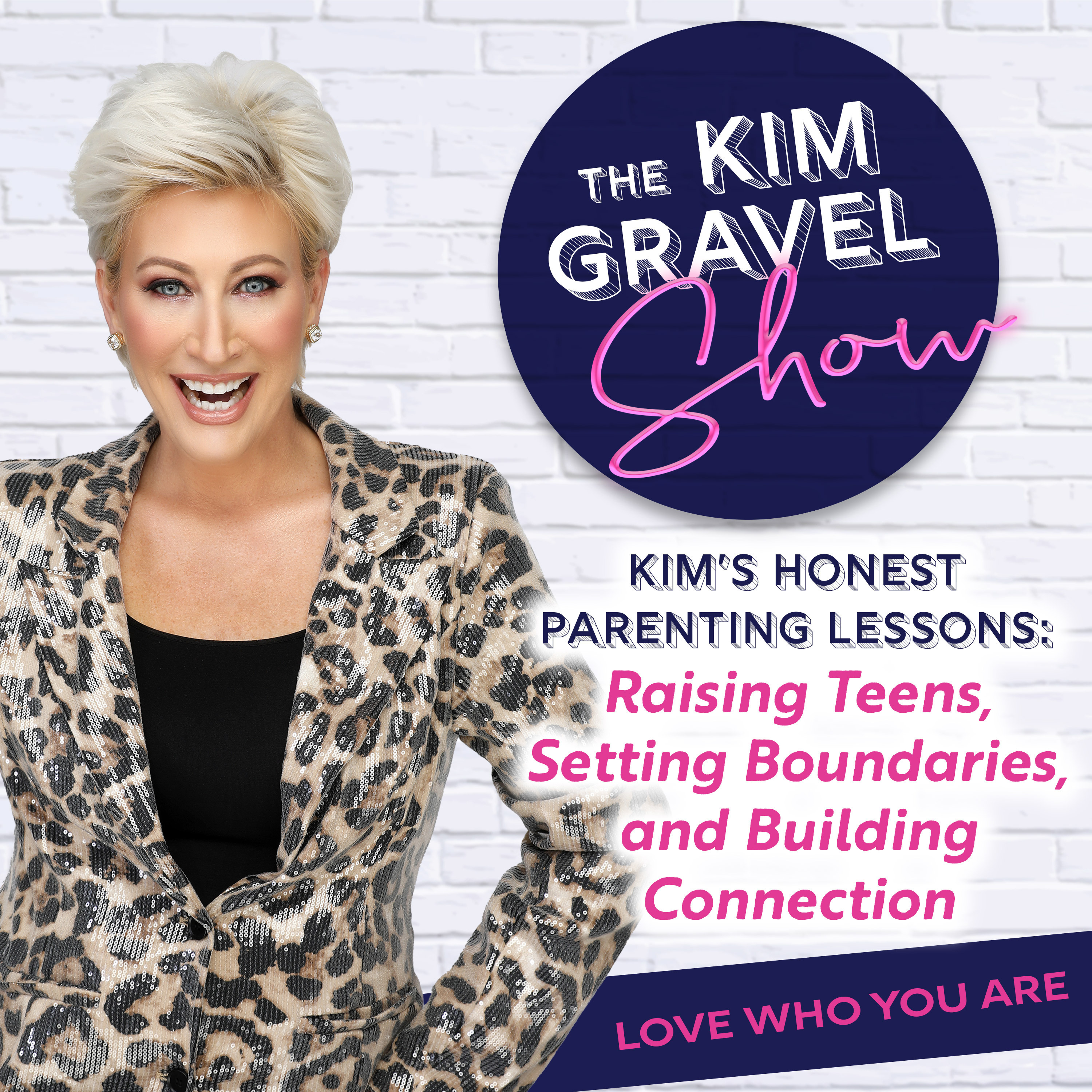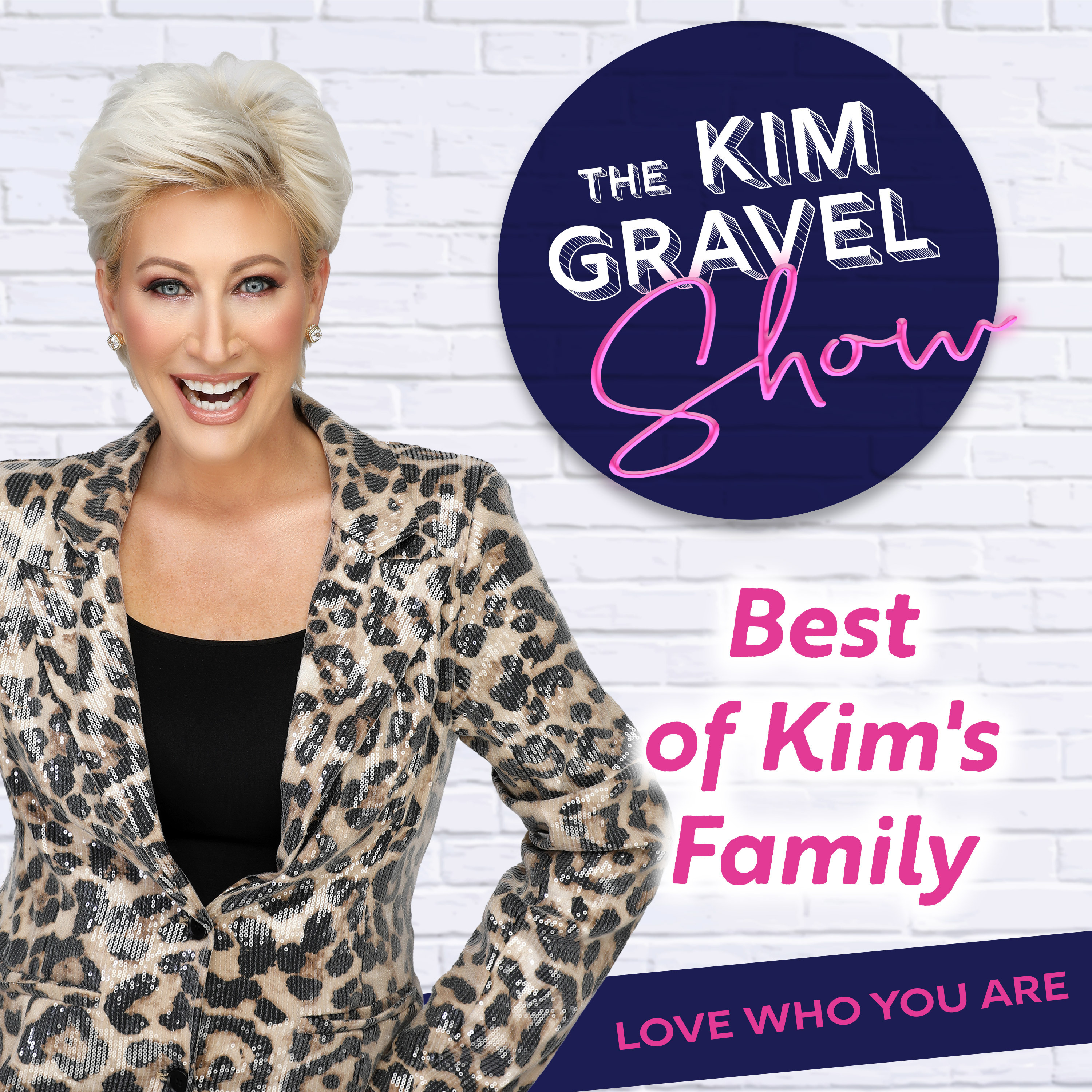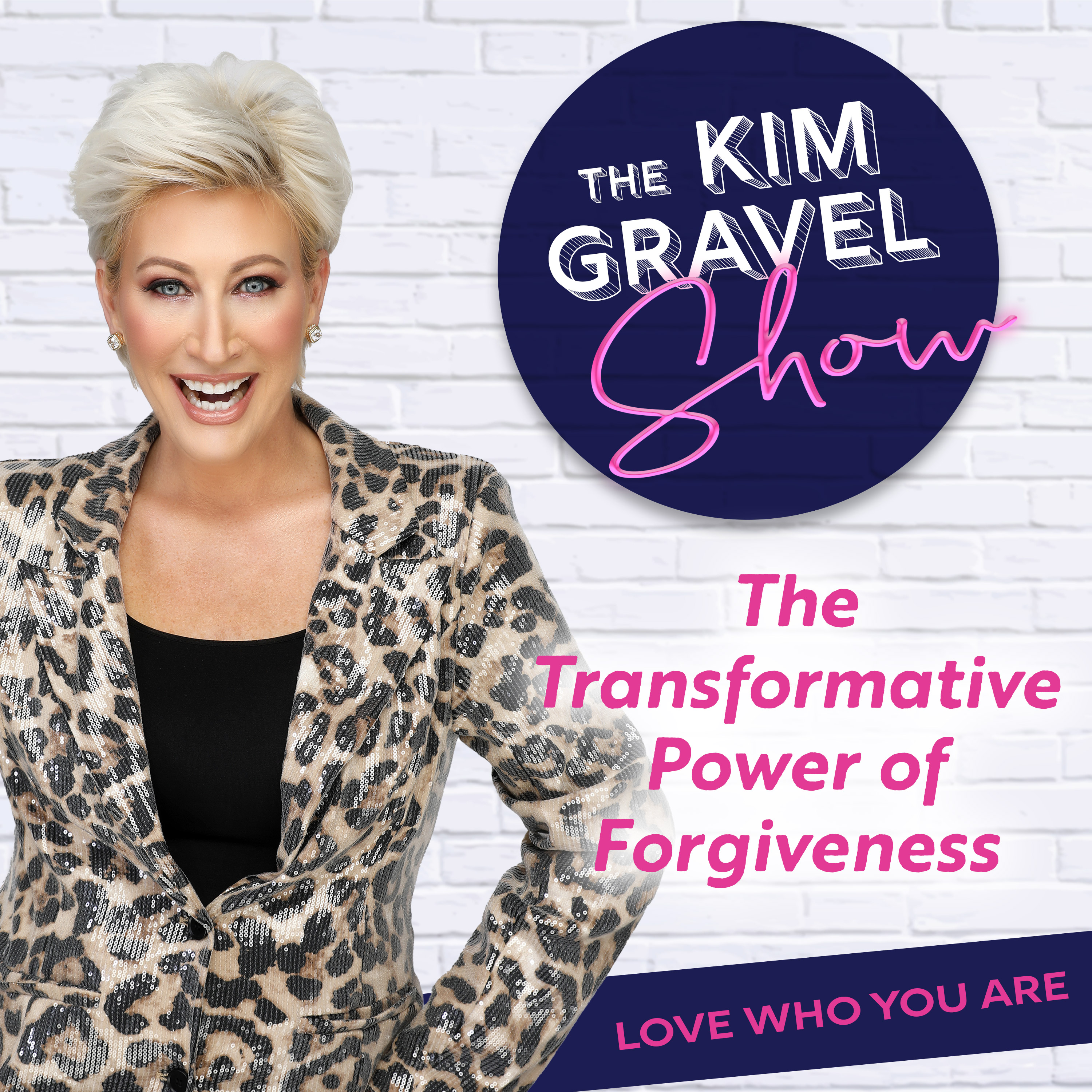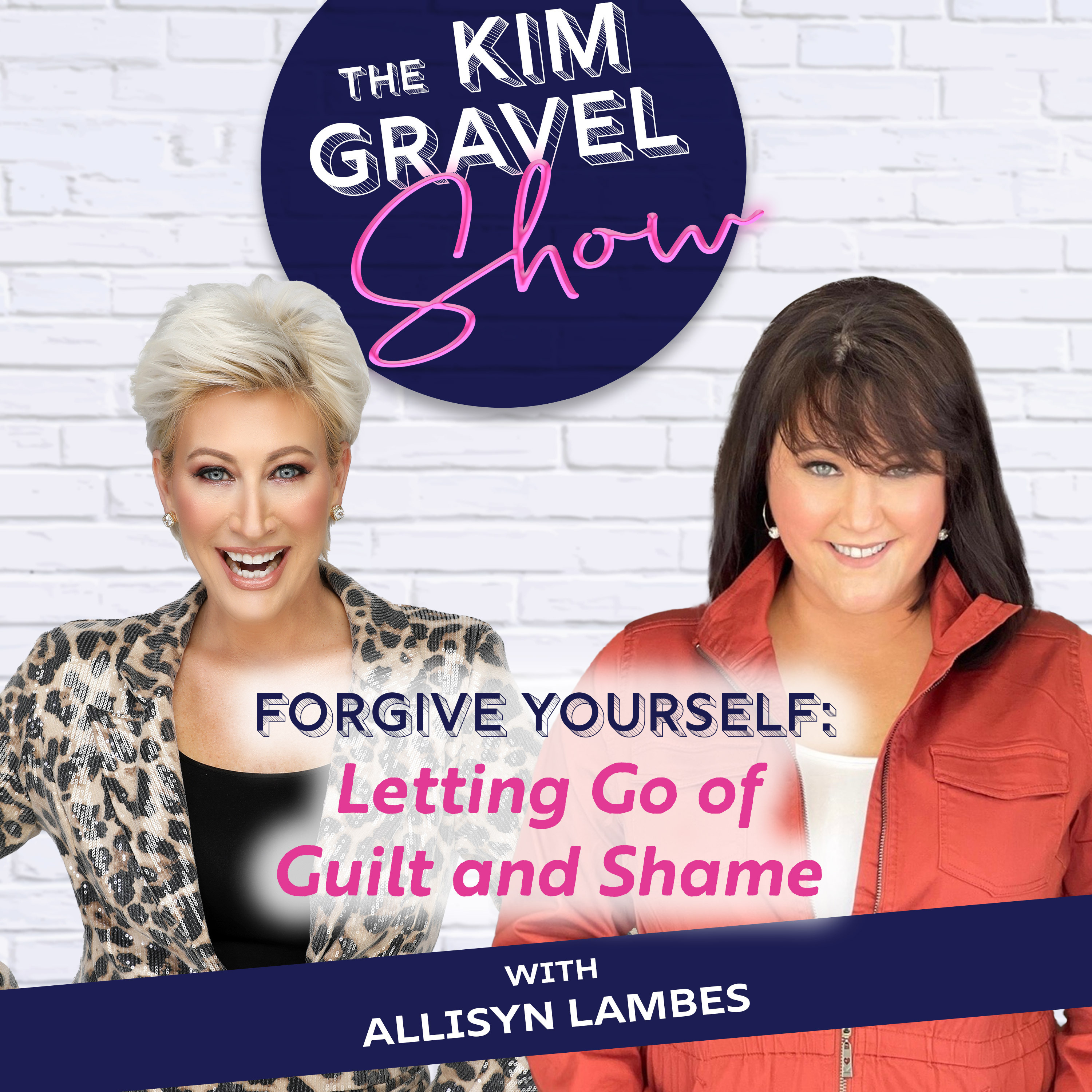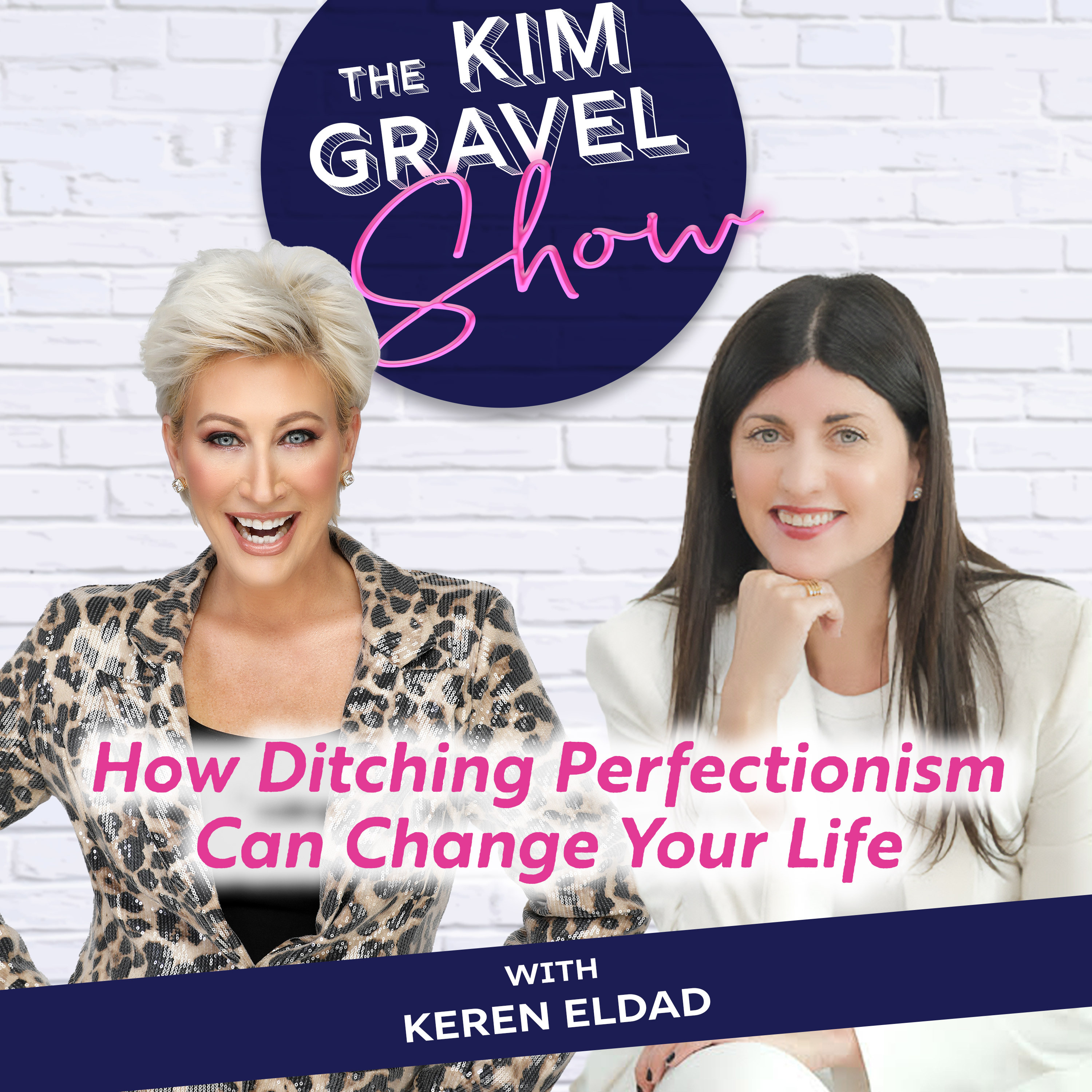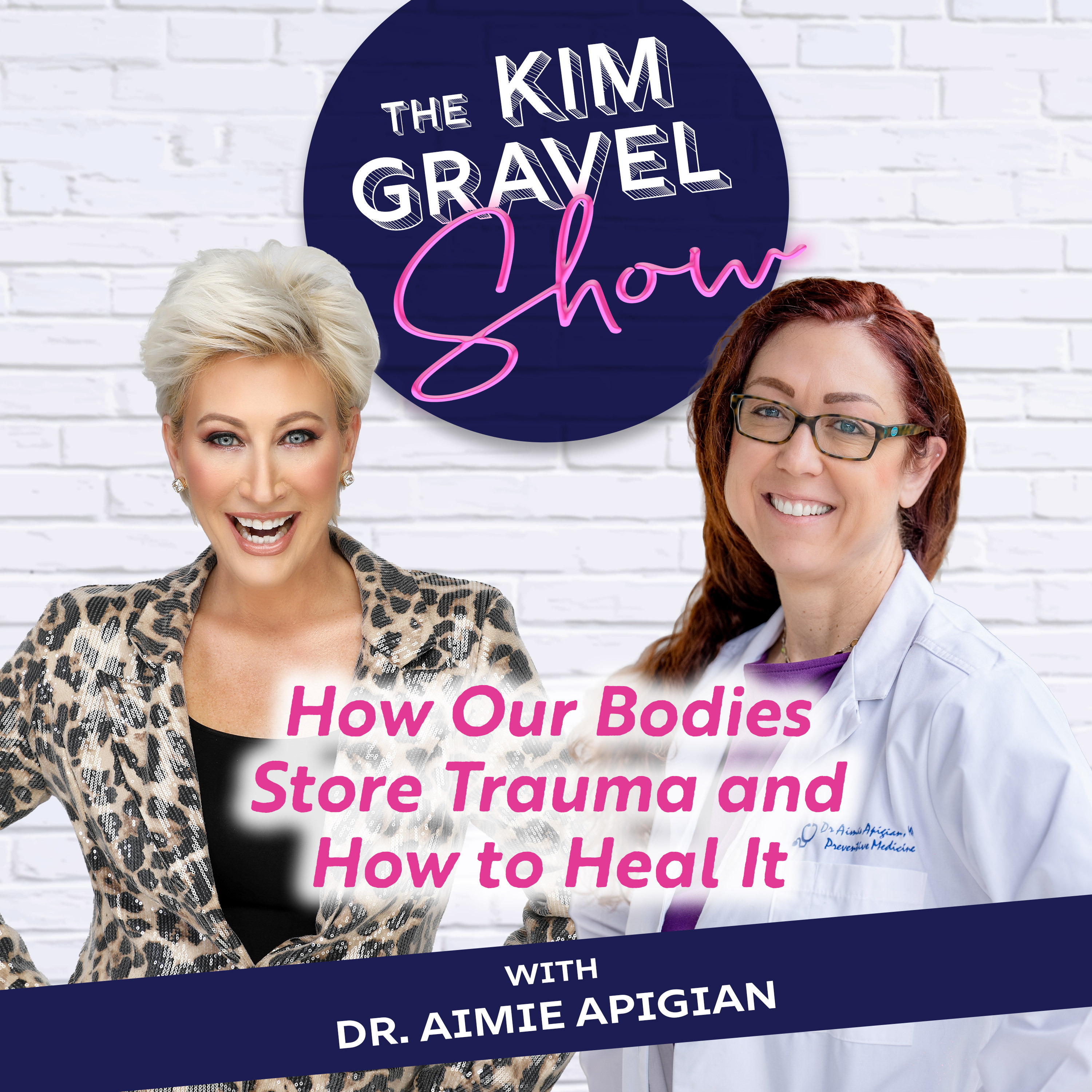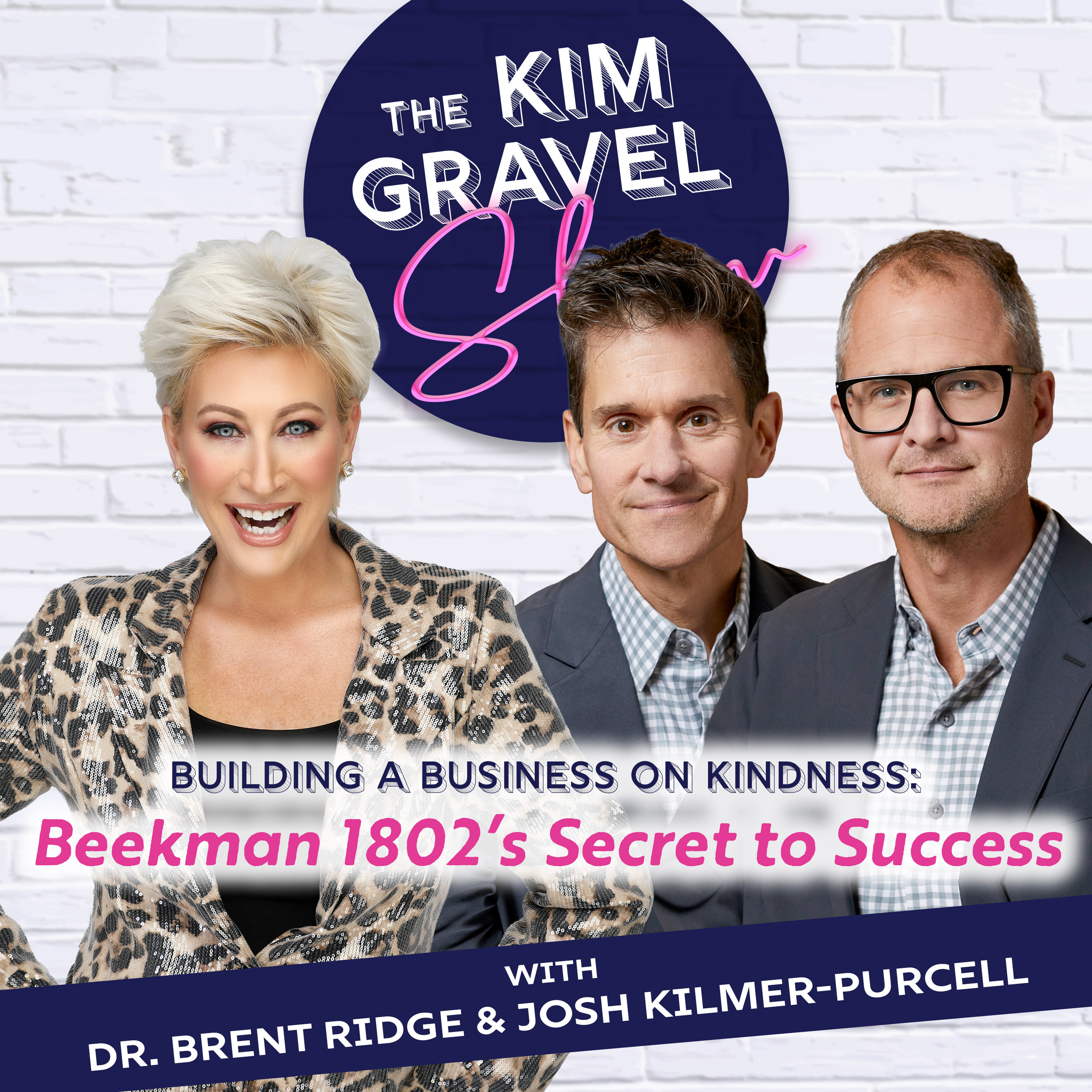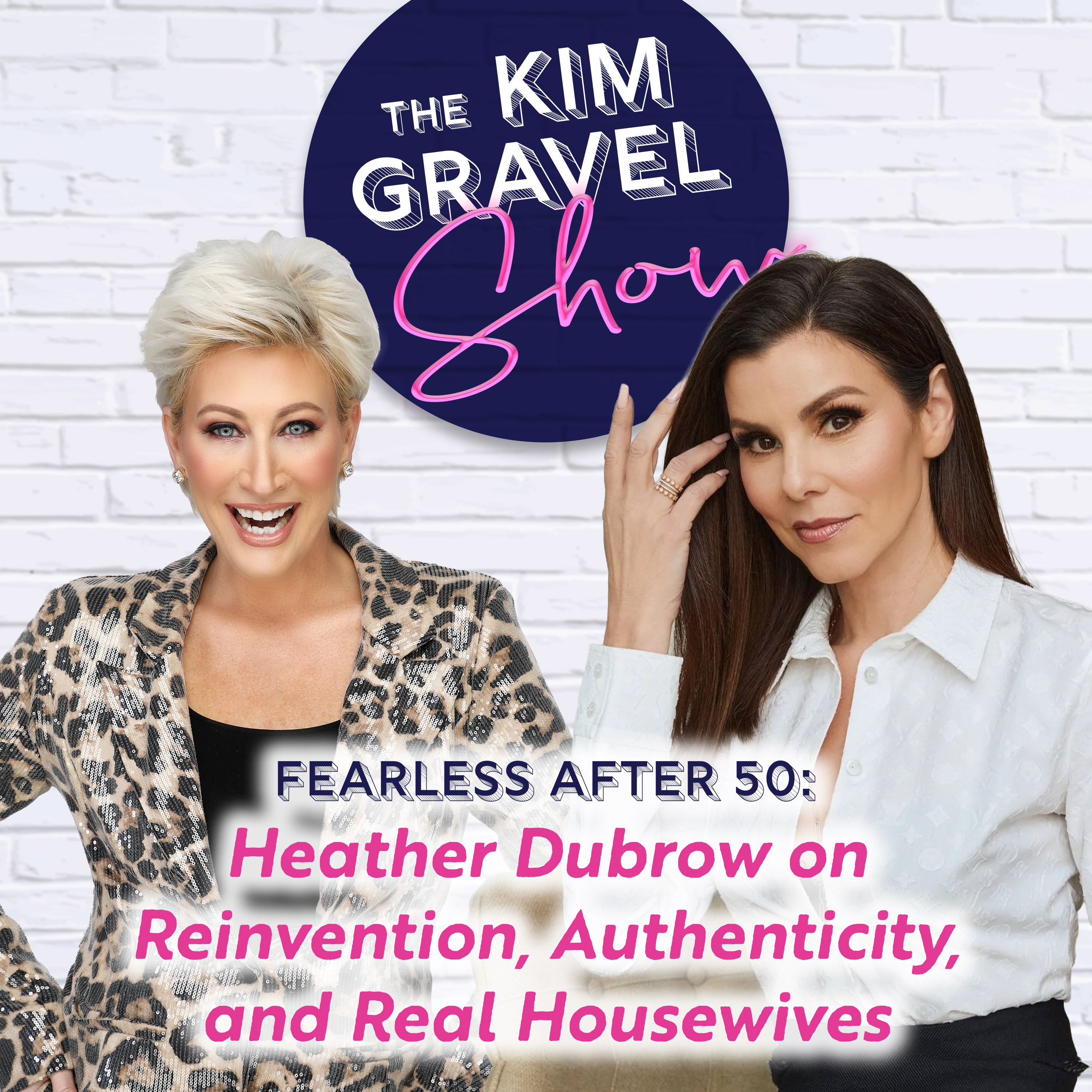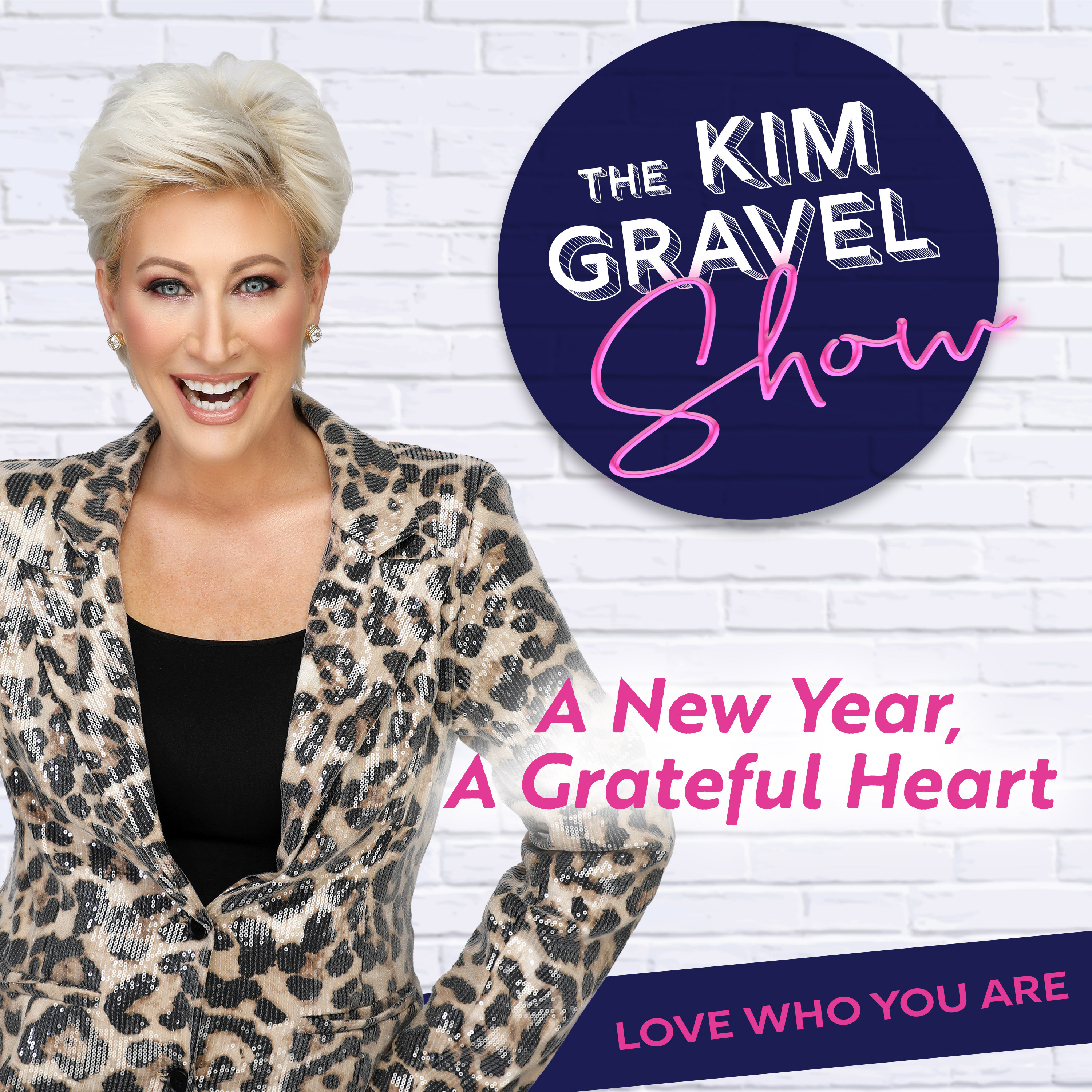Secrets to a Happier Life with Gretchen Rubin
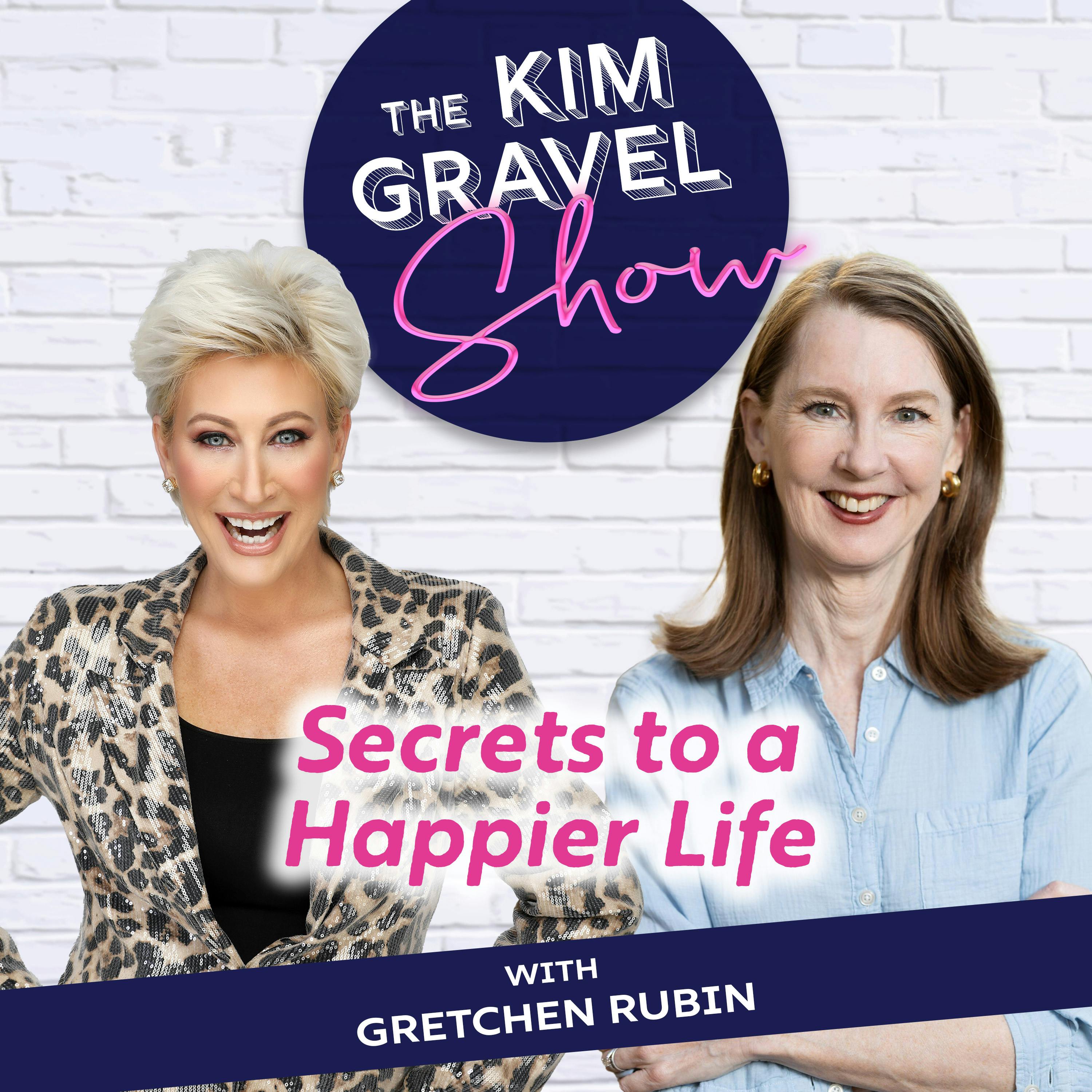
Gretchen Rubin shares simple, powerful tips to help you feel happier, more purposeful, and inspired in your everyday life.
This week happiness expert Gretchen Rubin shares practical tips for living with more purpose, joy, and clarity. Get ready to swap your “to-do” list for a “TA-DA” list, discover the link between happiness and your sense of purpose, and learn simple hacks to boost your happiness every day. Whether you’re looking to strengthen relationships or eliminate everyday annoyances, Gretchen’s down-to-earth advice will leave you inspired. If you want to live a more fulfilled and happy life, this episode is for you.
In this episode:
- How to find more happiness in the daily grind
- How to spot what’s actually making you unhappy
- The link between happiness and a sense of purpose
- Why strong relationships are key to lasting happiness
- Simple daily habits that boost your mood
- Why you should swap your “to-do” list for a “TA-DA!” list
- How Gretchen’s new book could be a game-changer for your life
Here is my favorite quote from this episode:
"You're very focused on your to-do list. Pause for a ta-da list and make a list of everything you've accomplished." - Gretchen Rubin
Exciting news! My Lifetime series Kim of Queens is now streaming on Disney Plus! Join me as I help these girls discover true beauty is more than skin-deep. Click this link to check it out now!
Have you tried my exclusive ZERO sugar candy yet?
Kimmie's Candies Sea Salt Caramels are the perfect gift that’s both indulgent and guilt-free. Rich, chocolatey caramel with a touch of sea salt—zero sugar, keto-friendly, and gluten-free. A delicious, guilt-free indulgence!
Order now at kimgravelshow.com/candy.
Supply is low so get yours before they sell out.
Do you want to hear your voice on the show?
Call me and leave me a voicemail at 404-913-6460 and let me know why you love who you are!
There is BONUS CONTENT in our free newsletter so make sure to subscribe at https://www.kimgravelshow.com
Collecting Confidence, my best-selling book is now available in paperback with a brand new discussion guide!
Click this link to buy it now.
Join my Love Who You Are movement at https://lwya.com
Connect with Me:
Connect with Gretchen Rubin:
New episodes of The Kim Gravel Show drop every Wednesday at 6pm EST.
Support our show by supporting our Sponsors:
Pique
Pique is on a mission to create doctor-approved, cutting-edge solutions for your head-to-toe health and beauty transformation. Feel more hydrated, energized, and like your best self with Pique products—say goodbye to exhaustion, dull skin, and energy crashes.
Get 20% off + a FREE starter kit at Piquelife.com/KIM. Your body and skin will thank you!
American Financing
Struggling with high prices and credit card debt? You're not alone—Americans are facing record debt levels. American Financing, a family-owned mortgage lender licensed in all 50 states, can help you use your home’s equity to pay off high-interest debt.
Their salary-based mortgage consultants are focused on what’s best for you—not commissions. Customers save an average of $800 a month, and you may even close in as fast as 10 days. Plus, you could delay up to two mortgage payments, giving you extra breathing room. There are no upfront or hidden fees to see how much you can save. They’ve helped hundreds of thousands of homeowners, with great reviews to show for it.
Call 866-889-5154 or visit https://americanfinancing.net/kim to get started today.
Disclaimer: NMLS 182334, www.nmlsconsumeraccess.org
*This transcript was auto-generated*
Gretchen Rubin:
All of these are things that would make a person want to be happier. But what you would do to address them would be vastly different.
Kim:
That is such a simple thing to instill into your life. To become happier instantaneously. It's the Kim Gravel show. It's the Kim Gravel show. I wrote this to Beau. It was so terrible. Never knew you were so funny at school. I mean, I know you're fun at home a little bit, you're quick witted, but I didn't know that you would win most wittiest.
Kim:
When did that happen? What an encouraging parent. What an encouraging parent.
Zac Miller:
Wait, tell. Tell the people. Kid, we're recording now. I just hit record.
Kim:
Tell them what you're talking about. So I get this thing, Mom, I need you to get pick up this, this and this. Cause he, Beau is senior and he won, you know, most likely to make you laugh, wittiest of his class. And I was shocked because first of all, remember he said his dad was funnier than me, which is not true. It's not the case. And two, I never knew Beau to be funny. And so I found out because he's like, I need you to get me this, this. And I said, okay, why? You know some crazy things.
Kim:
And he goes, cause I have senior superlative pictures. I'm like, you want a senior superlative? And I said, what was it, Kim?
Zac Miller:
Do you want to know? Can you guess? Guess what my senior superlative was?
Kim:
What was it?
Zac Miller:
Yeah, I want you to guess.
Kim:
You're never intellectual.
Zac Miller:
No, I went to a very tough school. I was not the smartest person there at all.
Kim:
Okay, okay, okay.
Zac Miller:
Most random.
Kim:
Oh, I totally see that. Oh, I totally get that 1000 freaking percent.
Zac Miller:
I think that's like another way to say most creative. So that's how I'm taking it.
Kim:
Most random. I totally agree with that. A thousand percent. I won most talented, so I was most talented in my class. I mean, but for Beau to win, like most, the wittiest, most likely to make you laugh, I'm like, what? And so I text him. I never knew you were so funny at school. I know you're fun and funny. Quick witted at home somewhat, but when did you find this out? So if nothing else, I never knew my child was so funny and make people so laugh and be so happy.
Kim:
Okay, I never. Cause he's kind of a little bit of a curmudgeony person.
Zac Miller:
I like that you're describing your 17 year old son as curmudgeony. That's perfect.
Kim:
Oh, he's like a 70. He's like. He's like. Travis and him would be the Muppets. What are the Muppets that are sitting up in the. No, the two old guys.
Zac Miller:
Yeah, they're like.
Kim:
Who are they?
Zac Miller:
Yeah, yeah, yeah, totally. That's so funny.
Kim:
They're just making, like. Just talking, making snide comments. What are their names? Look it up. Yeah, that's who Beau and Travis are. I mean, I see those guys. I'm like, that's you and your dad right there. So I never knew he was funny.
Zac Miller:
Statler and Waldorf. Statler and Waldorf. Yeah.
Kim:
Yes. Yes. I just. I was in shock by that. But anyway, so I didn't know we were taping, but that, that was my. We have a happiness expert on the show today. We're talking about being happy, but I really just don't feel like I can. I'm that happy.
Zac Miller:
Do you not feel like you're that happy? I actually, this was a question I was gonna ask you, Kim, because I know that you're, you know, busier than a one armed paper hanger, as you would say.
Kim:
Bravo for the Southern colloquialism. Thank you.
Zac Miller:
You know what? Here. You're welcome.
Kim:
Congratulations.
Zac Miller:
Round of applause.
Kim:
Now that is funny. That is funny.
Zac Miller:
No, but seriously, like, are you. Do you feel. Are you happy?
Kim:
I don't feel happy. Like, I know that sounds terrible. So if anybody out there. I don't feel. I don't feel like I don't feel happy. But I want to. I want to find out what happiness means. Because to me, like, joy and happiness, to me, I think happiness is more circumstantial and joy is more contentment.
Kim:
I mean, because life is hard. You know, I say this, it is 85 and a half percent hard. You know, 10%. Okay. And then you have that little small, you know, percentage of bliss. Other than that, it's just hard. Life is hard. And the quicker you accept that, I mean, I'm not trying to be negative.
Kim:
I'm probably a little bit more of a realistic. But you actually can find the joy and happiness.
Zac Miller:
Okay. I have a question for you, Kim. This is actually really interesting because you always describe sort of your happy place as this very sort of like insular alone, like. No, no, no. I don't mean that as a bad thing.
Kim:
I mean, that's a good thing. Are you an introvert?
Zac Miller:
Are you a secret introvert, Kim Gravel?
Kim:
I think I'm at a. I think I'm a mom and a woman who constantly gives out. So, no, I'm definitely an extrovert. I get fed by people for sure. I love being around people. O but I like to be around people who don't want things from me all the time. So it'd be nice to be around people and just laugh and eat and have fun. But.
Kim:
And I think a lot of women can relate to that, you know, like girls trips. Oh, yeah.
Zac Miller:
Okay.
Kim:
But the daily grind. That's what I'm saying. Like, how do you be ha. How do you become a happy person in the day to day grind? Because the mental. The mental strain on. On people, period. I'm not going to. Dudes have mental strain too.
Kim:
My gosh. But the mental strain, I can't speak to what y'all have. I can just only speak to what women have. The mental strain that's on a woman, her mind never shuts off. So for me, it's not so much isolation. It's more shutting the brain off.
Zac Miller:
And that, to me is so difficult. Honestly, I think it takes a lot of, like, figuring out how. Yeah. How do you do. How do you actually do it in a way that makes you happier? Right. Because for me, it's like I'll shut my brain off and I'll go on TikTok for, you know, half an hour or an hour or three hours because I get sucked into it and I don't feel good about it. I don't feel good about myself after I've done it or even while I'm doing it, if I really think about it. But it's, you know, it's that dopamine addiction.
Kim:
That's not happiness. No, happy. I looked up the definition. It says happiness is an enduring state of mind, which I think is an interesting phrase. It's an enduring state of mind. So. So it endures. It.
Kim:
It endures doesn't mean constant. Right. Doesn't endure mean you really have to endure means you got to put up with a lot of bull. You got to put up with a lot. Right. Consisting not only of feelings of joy, contentment, and other positive emotions, but also a sense that one's life is meaningful and valid. And to me, having this enduring state of mind that has a sense of meaning and value. Now that I can get a behind that, then.
Kim:
So if you say to me, Kim, are you a person who has an enduring state of mind that consists of feelings of joy, contentment, and other positive emotions, but more importantly, a sense that has one's life has meaning and value, I would say yes, I'm happy because I do have an enduring State of mind, of meaning and value. Because I think again, when you're a person of purpose, it doesn't matter the circumstances. It doesn't matter that life is 85 and a half percent tough. Yeah. Because it's. It. Happiness endures. Oh, come on now.
Kim:
And I can't wait to talk to our Russian about this. Happiness endures. It's not something that. That blows with the wind. Yeah, it stays. I mean, and I think. I think you can interchange that with joy, because joy is.
Zac Miller:
Yeah, joy. But joy is different than happiness. I feel like joy is fleeting. I feel like joy doesn't.
Kim:
Look it up.
Zac Miller:
Joy happens in moments. Yeah, I'm looking it up.
Kim:
I don't think so.
Zac Miller:
Okay. Joy says a feeling of great pleasure and happiness. Okay, well, that's not especially a helpful definition. See, Merriam Webster says joy, the emotion evoked by well, being success or good fortune or by the prospect of possessing what one desires. Oh, that's interesting, Kim. It's the prospect of possessing what one desires, not actually possessing it.
Kim:
Correct. That's what I'm saying that's interesting. I'm telling you, it's what I have considered joyful or happy has been directly related to meaning and purpose. Because you could not endure and have those feelings of happiness and joy.
Kim:
Have that contentment if you didn't have a why.
Zac Miller:
Yeah, yeah, you need the why.
Kim:
You need the why.
Zac Miller:
The why is the key thing.
Kim:
What is your why? What is your why? I can say, like, everybody listening. Why are you here? What do. What. Why do you get up in the morning? What is your why? Because I think when you know that you can get up and experience happiness even in the toughest of days, worst of circumstances, and even if you have to go, you know, exhausted to go to a tennis match, then go pick up an outfit for a kid who told you last minute that he's got to have it tomorrow by 8:30 in the morning. Do you know what I'm saying?
Zac Miller:
Yeah.
Kim:
Like your why pushes you, it helps.
Zac Miller:
You to endure and it informs the decision. Right. It's like, oh, is this thing that I'm about to do, does this actually follow my why? Does that actually lead me to that?
Kim:
Don't you think that is about what parenthood's all about? Cause parenthood is not this blissful joy, happiness journey.
Zac Miller:
Parenthood is both about just getting through the day and then also getting through, you know, actually raising a kid who's not a total nurse dude.
Kim:
It is the day, the years are short and the nights are long.
Zac Miller:
Well, that's really interesting. So I know that not to give anything away, but this is definitely something we should talk about, which is our guest today. She's an empty nester. Her kids. I think she has two daughters in their 20s.
Kim:
No wonder she's happy.
Zac Miller:
But she has a really interesting way of approaching the empty nest that we should talk to her about. I won't give it away. We should. She has a different way of phrasing it, which I think is cool.
Kim:
This thought of living a life of happiness is exciting to me because I think it starts with meaning. And so if you were to say, Kim, what is your why? So I challenge everybody right now to really think that through for themselves. But my why is to really encourage and see people live up to their fullest potential. Yeah, that is my why. That's why I do. If I go and talk to somebody at the grocery store, that's. We end up there. If I go and I, you know, I'm speaking to a crowd of people, I end up there on qvc.
Kim:
I end up encouraging. I mean, that's just so I live from a place of my why. And so therefore, no matter what I'm going through or experiencing, I think happiness is. Can be found.
Zac Miller:
Yeah. Yeah.
Kim:
I'm gonna ask Gretchen about it. Cause she's the expert. But what's your why, Zac?
Zac Miller:
Well, Kim, my why is to produce the show with you. No, it's gotta be bigger than that. That's a really. That's a tough one for me. I think it's hard to articulate. I mean, I think. Here's the thing. And we've been doing this show for a long time, and I've thought a lot about this, and in this moment, it's hard to articulate my why.
Zac Miller:
It's hard to say it. So. And this is one of those things. It's like saying something short and sweet can be d hardest thing. And again, our guest is so good at that. And that's sort of what her whole book, her new book is. I won't again give that away. But I'm super excited about it.
Zac Miller:
I feel like my why is to. Is to share. Gosh, I don't know. I'm going to have to take a rain check on that. I don't know.
Kim:
Well, I think that's a good question for everybody. Listening right now is like, if happiness is the goal, right? If we all really want to just live a happy, contented life. Because right now the narrative is go to school make straight A's, go to college, get a good job, get married, have 2.5 kids, get a huge mortgage and live out the rest of your life until you retire. And that's happiness.
Zac Miller:
Yeah.
Kim:
And we both know that ain't it.
Zac Miller:
That ain't it. No.
Kim:
At 53, I know that ain't it.
Zac Miller:
Yeah. Well, let's get into it because our guest is here now.
Kim:
Okay, let's pull her in.
Zac Miller:
Let's pull her in.
Kim:
Let's pull her in. Pull her in, honey. She can help us.
Zac Miller:
All right, here we go.
Kim:
Hey, y'all. Kim Gravel here with the Kim Gravel Show. And I'm so excited about today. I know I say it every week, Zac, and I'm so excited, but I'm really.
Zac Miller:
I think. I think you should say, I'm so happy.
Kim:
For today, I've got a new adjective. People, I'm stepping up. I am so happy today because my guest is here to show some powerful yet simple truths about living life, y'all, with more clarity, joy, and happiness. She is a six time New York Times bestselling author. Her podcast, Happier with Gretchen Rubin, has been downloaded hundreds of millions of times. Okay. And her new brand new book is Secrets of Adulthood. Yep.
Kim:
Sign me up. It drops April 1st. Let's welcome Gretchen Rubin.
Gretchen Rubin:
Hello. I'm so happy to be talking to you today.
Kim:
I am, too. Listen, that word happy, you gotta start off by defining it. Cause Zac and I were kind of jousting back and forth before you came on about what happiness is and what joy is. And is it circumstantial? Can we just defi. Can you define for us what happiness means, Gretchen, for once and for all?
Gretchen Rubin:
Well, here's the thing. So I started my career in law. So I remember spending an entire semester arguing about the definition of contract. And happiness is an even more elusive concept. There's something like 17 academic definitions of happiness. And so I'm like, I don't think that it's really that useful to spend a lot of time arguing about definitions because for one person, it's peace or it's contentment or it's joy or it's bliss, or it's well being or, you know, and I think. I think it's for the regular person, not a scientist, to define their terms. But for regular people, I think it's more straightforward to think like, well, what would make me happier? Because if am I happy? Is very confusing.
Gretchen Rubin:
But, well, if I did this this week, this month, this year, would this make me happier? Would it help Me move in the right direction. That I think is very easy to understand and it's easy to. To agree kind of on that. So I just side that question altogether because you're right, it's very hard. It's hard. And I think it's. I think it's kind of boring actually to argue about definitions. So let's, I think let's.
Gretchen Rubin:
Whatever it is for you, let's talk about how to get more.
Kim:
I love it. Okay, well, you know, you didn't just go to law school and do the law thing. You were editor in chief of the Yale Law Journal. Yes. And you clerked for the Supreme Court, Justice Sandra Day O'Connor. How do you get from law? Which, you know, I'm just gonna say what we all know, people's perceptions of the law and lawyers and all of that kind of good stuff. Right.
Zac Miller:
We love lawyers.
Kim:
Lawyers, we love intense, brilliant. How do you get from that to being this happiness? I'm gonna say expert. This person who's really, you know, taken a bite out of the happiness apple and lived. You're happy. How did you get there? You gotta give us your background.
Gretchen Rubin:
Okay. Well, it was sort of a two step process. So the first thing is. So there I was clerking and I often will ask myself kind of rhetorical questions just as a way to amuse myself. And so I was out on my lunch hour, just walking around, and I asked myself, what am I interested in that everybody in the world is interested in? And I thought, well, power, money, fame, sex. And I thought. And this, to me, felt like this one big subject. And for some reason I just became absolutely, absolutely preoccupied with this and started researching and taking a lot of notes on the subject of power, money, fame, sex.
Gretchen Rubin:
And this is something that has happened to me ever since I was young. Like I'll get really interested in something, take a lot of notes and go deep. But this got bigger and bigger and bigger and bigger. And I was taking tons of notes. I was doing it in all my free time. And then finally it occurred to me, this is what a person would do if they were going to write a book. And then I thought, well, maybe I could be the person to write that book. So I went to the bookstore and got a book called something like how to Write and Sell youl Nonfiction Book Proposal.
Gretchen Rubin:
And then I just followed the directions that and Power, Money, Fame, Sex became my first book. So that's how I made the jump to writing from law. It was to write that book. And then I wrote. I wrote a biography of Winston Churchill. So then I wrote some other books, but then my fourth book. So I've been a writer for 10 years.
Kim:
Long time.
Gretchen Rubin:
Once again, I asked myself a rhetorical question. I was stuck in a crowded city bus in the pouring rain, and I thought, what do I want from life anyway? And I thought, I want to be happy. But I realized I didn't spend any time thinking about what is happiness? Can you make yourself happier? What would I do if I were going to try to make myself happier? Would it work? And I thought, well, I should have a happiness project and learn all about happiness. And it was just for me when I started, I just wanted to know in my own life. But it was so fascinating and so kind of. There was so many things that I wanted to learn about and experiment with that. Finally I thought, maybe this should be my next book. And then indeed, I've become so interested in the subject of happiness that all my books ever since have one way or another related to the subject of happiness.
Kim:
Talk about a broad mass topic.
Gretchen Rubin:
Yeah.
Kim:
Happy.
Gretchen Rubin:
Yeah.
Kim:
And I think we. That's something. It doesn't matter where you come from, your socioeconomic status, gender, we all want to be happy. Like it is something innate in all of us. Right? And if we can't define happy, what is the. Where's the starting point of happy? Because you said you were. You're asking yourself your question, like, what is the Happiness Project? Like, how did you do that? Like, what is that? Can we do that?
Gretchen Rubin:
Sure. Yeah. Well, the way I did the Happiness project, and that was sort of my first book in this series, was I thought, okay, I'm gonna take a year and I'm gonna do a bunch of research into like, what ancient philosophers and contemporary scientists and everybody in between say can make your life happier. And then I'll try to apply it in my own life. So, for instance, everybody agrees that if you had to pick one thing for a happy life, if you had to pick one element, you would say relationships.
Kim:
Sure.
Gretchen Rubin:
In order to be happy, we have to have strong relationships with other people. And So I had 12 months. I gave myself a theme for all the different months. What could I do to deepen or broaden my relationships? And then I just did experiments to see what would work. And so I did that with different subjects. I think a lot of people know perfectly well what would make them happier. Like, I'd be happier if I read novels instead of doom scrolling, or I'd be happier if I saw my friends more often or whatever. It's really a question of execution more than for a lot of people.
Gretchen Rubin:
It's a question of, like, mystery of what it would be like for me.
Kim:
I think I am the happiest. And as I've gotten older, to be honest with you, Gretchen, it really has become an easier thing to tackle because I. And to live in that contentment and happiness has been a little bit easier. I'm busier than ever. Like, I got two teenage kids. I ain't got time for all of that.
Gretchen Rubin:
Right.
Kim:
Honestly, I think I'm happier than I've ever been. And I think it's not related to circumstance. It's related to. Because I feel like I have a why. I feel like there's meaning and value to the life I'm living now. And it's made a world of difference to just acknowledge. And we all have it, I think. Do you think that is a direct relation to happiness?
Gretchen Rubin:
Yeah. No. A sense of purpose is. And like, having a sense of purpose at work is a huge. Is a huge element of happiness. You know, just mentioning Justice O'Connor, I remember I asked Justice O'Connor, well, what do you think the secret to happiness is? And she answered instantly, like, so obviously she thought about it a lot and she said, work worth doing.
Kim:
Come on now.
Gretchen Rubin:
Right?
Kim:
What are you talking about? That.
Gretchen Rubin:
That's what you're talking about. And the thing is, you know, she didn't say paid work. You know, there's many, many kinds of work that people do, but when you have work worth doing, then that is that. So I think. Yeah, I think you're. I think you put your finger right on something very, very essential.
Kim:
It's changed my. It's changed the way I see even, like, other people. Like, it's spilled over into those relationships like you were talking about, those connections, you know, because I can. I can recognize it in other people, too. Okay, back to the happiness project. Were you unhappy? Is that why you started the Happiness Project?
Gretchen Rubin:
Or is it just. I actually was pretty happy, so I was kind of a good stand in. Because all across the world, like, when they do surveys of people, most people say they're pretty happy. You know, they say they're either very happy or pretty happy. People are very resilient. A lot, you know, people are pretty happy.
Kim:
They endure.
Gretchen Rubin:
Now, of course, we all go through ups and downs individually, certainly, and then also kind of culturally, like, we'll all be like, groping with things that bring unhappiness. But I think, like, no, but. So when I went into it, I was pretty happy. And one of the Things I wanted to achieve with my happiness project is I wanted to have more gratitude for what I already had, because I felt like I was spending too much time on kind of, like, minor grudges or, like, you know, passing irritations and really not remembering how happy I was.
Kim:
We have to talk about that. We have to talk about that, because I think a lot of us live there. Yeah, I think. I mean, seriously, that can get. I mean, you said what? Passing. What did you say?
Gretchen Rubin:
Grievances and minor irritations.
Kim:
Okay, we have to talk about that. How do you let that go?
Gretchen Rubin:
Well, you know, one of the things I realized is that, like, I really have to get enough sleep. Like, I'm a person who gets very, very crowded.
Zac Miller:
I'm screwed.
Kim:
I'm screwed.
Zac Miller:
That's this guy right here.
Gretchen Rubin:
Yeah.
Zac Miller:
That is my biggest problem. I was just telling Kim that was my biggest problem right before we taped.
Gretchen Rubin:
Yeah, it's. It's. I have. And I have to make sure that I. You know, so one of my things is I treat myself like a toddler. Because, you know, if you have a To. You're like, you do not mess with the sleep. You don't skip a meal.
Gretchen Rubin:
You don't go outside without the coat. Like, you make sure they have time to relax. You don't rush your transitions. We all know what you need, because otherwise you have this huge meltdown. I am that toddler. I need all of that.
Kim:
That's your next book. Treat yourself like a toddler.
Kim:
I'm totally stealing that.
Gretchen Rubin:
Okay.
Kim:
That's the tagline. It's so true, though, right? That is such a simple habit. That is such a simple thing to instill into your life. To become happier instantaneously. Sleep and don't what you say. Don't rush, girl. You're so fast. You're so prolific.
Kim:
I have to keep. I can't keep up.
Gretchen Rubin:
Oh, transitions. You know how with little kids, they're like. You know, like with teachers in kindergarten, they're like, now, soon, we're gonna. It's gonna be time to put our toys away. You know, I'm like, I need that. I can't. I can't rush. Or I get very overwhelmed and crabby and, you know, and I have to eat three meals and plus snacks.
Gretchen Rubin:
I have to have my coffee. I have to get regular exercise. This is all things toddler. You know, I need to have downtime during the day. Now I take a nap. This is like a kind of a new thing that I started doing.
Kim:
You are profound. This is so profound. Treat yourself like a toddler, Zac, I'm not kidding you. That is huge.
Zac Miller:
Yeah. I mean, as someone who just, like, had a toddler, that's.
Kim:
Yeah, no, that is massive, Gretchen. And I'm sorry to keep going on and on about it because I want people to really get that it's so simple. But you're saying that is. That could be part. That could root yourself in starting off the day. Cause I think we think happy is an overall arching thing, right?
Gretchen Rubin:
Yeah. That it's abstract and confusing. Yeah. But again, but the thing is. Well, also one thing I like, and I bet a lot of your listeners feel this way, is, like, it's hard to take for yourself. And so sometimes if you treat yourself like almost like a third person. Like, like. And I'll say to myself, something like, Gretchen doesn't do well if she doesn't get enough sleep, you know, or like, you know, Gretchen needs her coffee, you know, so sometimes treating yourself like a third person kind of helps you follow through with those things.
Gretchen Rubin:
And then I do think things like patience, keeping your sense of perspective, keeping a sense of humor, letting things roll off your back. Like, if you're feeling well rested and you've exercised and you're like, you. You're not starving, all of these things, it's just much easier to behave ourselves. That's what I found, is that I was misbehaving a lot of times just because I was crabby.
Kim:
I think I just. You know, I have a clothing line on qvc and we just started an in real life collection, and it does say cranky. One of our sweatshirts says cranky.
Gretchen Rubin:
Well, I mean, before I did, that was like, I would have worn that every single day.
Kim:
Yeah, I mean, it does make a difference. Okay, so you wrote a book called Better than Before.
Gretchen Rubin:
Yes.
Kim:
What I Learned about Making and Breaking habits. Do you think a lot of us are in these poor habits and a change in patterns and habits would help us be happier?
Gretchen Rubin:
Yeah, I really do. You know, habits are like the invisible architecture of everyday life, you know, and if we have habits that work for us, we're much more likely to be happier, healthier, more productive, more creative. And if we have habits that don't work for us, that is just going to be much more challenging. And so I think for a lot of people, working on even just a few key habits can make a big difference. It's interesting. One of the things people would often say to me is, like, well, what should I work on if I want to be happier? What's the One key habit I should work on, and I would be like, well, it kind of depends, because everybody's in a different situation, and everybody has different values, and people have different strengths and different weaknesses. Like, tell the people who are very annoyed by this answer, which is like, there is no one right answer because we're all different. So I even have a quiz if you go to GretchenRubin.com quiz it's called Habits for Happiness.
Gretchen Rubin:
And it will tell you it's not like, what one should do. It's like, what should Kim do with this very elegant design? It just asks, like, nine questions, and it will tell you what it is that right now. And this could change, you know, in a couple weeks. You might answer differently. But, like, right now, what is the thing that if you could address, it would do the most to boost your happiness? Because I do think that for most of us, there's a handful of things that if we should. If we could get these figured out and locked in, we would just be much happier. And I think most of us know that.
Kim:
First of all, people love a quiz. So, y'all, we're gonna link everything, and you're gonna go to Gretchen's website and take these quizzes.
Gretchen Rubin:
They're fun.
Kim:
They're fun. And we all love to. We all are trying to become more happier, and we want more happiness, and.
Gretchen Rubin:
We wanna know ourselves. And it's like, why is it so.
Kim:
Hard to know ourselves? But it is because we're crazy, girl. Because we're nutbags. You know? And I will tell you for me, like, I. I will sit in my own head. This is true story today, this morning. Because I never take time for. I obsess about the obsessive stuff I have to do. It's psycho.
Kim:
I mean, I'm sitting there talking myself out of being happy. Oh, I'm so tired. I can't do this again. And I work for myself. I can just go. You know what? I'm taking the afternoon off.
Gretchen Rubin:
Yeah, but it's like.
Kim:
It's like, we are happiness. We're our own happiness. Buzz kills.
Gretchen Rubin:
Wait, here's something you might think about, because you're very focused on your to do list. Pause for a ta da list and make a list of everything you've accomplished. Instead of thinking, oh, my gosh, here we are, deep into 2025. Look at everything I have to do. Think like, oh, wait. Ta da. What have I already accomplished in 2025? I bet you would be blown away, because with people like you, it's like the Minute it's crossed off the list, it's, like, forgotten. You don't give yourself any credit for all the things you've already done.
Kim:
Gretchen, you see me.
Zac Miller:
You had me at two episodes over it. That was the best advice possible.
Kim:
No, I mean the toddler. I'm still on the toddler thing. Y'all keep running ahead. I'm on the toddler thing. Cause that's what I'm gonna do. And now the ta da thing. I can't with you, girl.
Gretchen Rubin:
Mm.
Kim:
Mm. Now I know why you were clerking up there at all the big judge places.
Zac Miller:
Big judge places. Wait, wait, wait, wait. We have to answer. I. I don't want to forget, though. Kim and I both got Obliger on your four tendency.
Kim:
Yeah, we did. So what does that mean? Who are we? Analyze us.
Gretchen Rubin:
Honey, can I take a minute and explain the framework?
Kim:
Yeah, please.
Gretchen Rubin:
Okay, so what? So the four tendencies is a framework that divides people into four categories. Upholders, questioners, obligers, which is you and Zac. And it's also the biggest tendency. You are. It's you. Like, probably everything you say is resonating with the biggest number of people for both men and women, because that's the one that the biggest number of people belong to. And then there's rebels. So it's upholders, questioners, obligers, and rebels.
Gretchen Rubin:
And what this looks at is a very narrow aspect of your nature, but it's very significant. So what it is is how you respond to expectations. So we all face two kinds of expectations. Outer expectations, like a work deadline, and inner expectations, like your own desire to get back into meditation. So depending on whether you meet or resist, outer and inner expectations, that's what makes you an upholder, request and obliger rebel. Now, this sounds kind of complicated, but once you hear them, you see them everywhere. We could do the Game of Thrones characters. We could do the Office.
Gretchen Rubin:
We could do Better Call Saul. Like, they're everywhere, and you see them in your life. So upholders are people who readily meet outer and inner expectations. These are the people who meet the work deadline and keep the New Year's resolution without much fuss. They want to know what other people expect from them, but their expectations for themselves is just as important. So these people's motto is, discipline is my freedom. That is my tendency. Okay.
Gretchen Rubin:
Then there are questioners. Questioners question all expectations. They'll do something.
Kim:
That's what I'm married to.
Gretchen Rubin:
That's what I'm married to.
Zac Miller:
I'm married to the first one.
Gretchen Rubin:
Okay, you're married to an upholder. So I'm an upholder, but I'm married to a questioner. So they always have to know why. They need reasons. They tend to love to. They need to love. They won't do anything if they don't understand the reason. They need justifications.
Gretchen Rubin:
They often overwhelm people with their questions. They can have analysis paralysis when they can't move forward because, yeah, because they need more and more information. So they're making everything an inner expectation. If it meets their standard, they think it makes sense, they'll do it, no problem. If it fails their standard, they will resist. So their motto is, I'll comply if you convince me why. Okay, so we will do a sidebar later about what it's like to be married to a customer. Lots of pros.
Gretchen Rubin:
There are a few cons, then. Obligers. Okay, so this is the biggest tendency. This is your tendency, Kim. This is your tendency, Zac, and you are in big company because this is the biggest tendency. So obligers are people who readily meet outer expectations, but they struggle to meet inner expectations. So these are people who say things like, why can I keep my promises to other people, but I can't keep my promises to myself? And the secret for Obliger, it's very straightforward, is even to meet an inner expectation, you have to have a form of outer accountability. If you want to read more novels, join a book group.
Gretchen Rubin:
If you want to exercise more, you work out with a trainer or you work out with a friend who gets annoyed if you don't show up or you raise money for a charity or you think of your duty to be a role model for someone else. There are lots of ways to create outer accountability, but that's what you need. And so obligers make great leaders, great team members, great family members, great friends. These are the people that are the most likely to go the extra mile. I've had people ask me to create a screening mechanism because they only want to hire obligers because they're such valuable employees, because they're the people that go the extra mile. So the motto of obligers is, you can count on me, and I'm counting on you to count on me, because they need that accountability. And then finally, rebels. This is the smallest group, very visible, but small.
Gretchen Rubin:
So rebels resist all expectations, outer and inner. Like they want to do what they want to do in their own way, in their own time. They can do anything they want.
Kim:
That's my oldest son. That's my oldest son.
Gretchen Rubin:
This is right, you see it like you're identifying everybody that you know. Right.
Kim:
And that's why I want to, like, hit them upside the head.
Gretchen Rubin:
Yeah, well, because they can do anything they want to do. But if you ask or tell them they're to do something, they're very likely to resist. And typically they don't tell themselves what to do. Like, they don't sign up for 10am spin class on Saturdays because they think I don't know what I'm going to feel like doing on Saturday. And just the idea that someone's expecting me to show up is going to annoy me. So their motto is, you can't make me, and neither can I. And again, most people know what they are just from this description. But you can go to GretchenRubin.com quiz like, three and a half million people have taken the quiz.
Gretchen Rubin:
It's very short and free. And you get a little report that tells you kind of more about the tendency and how to use it.
Kim:
But Gretchen is knowing that part of living this happy life that we all want.
Gretchen Rubin:
Yes. Because I think a lot of times people are really confused because they say things like an obliger might say, look, I don't understand it. Like, I know that I'm happier when I read, and I have a big stack of books that I'm dying to read, and I know that it's good for me, so why am I not reading? Because I'm like, well, because you need outer accountability. So then you need to join a work group. Or maybe you have kids who are doing homework and you say, hey, kids, while you're doing your homework, I'm going to be reading. And if you see that I'm not reading, that means you don't have to do your homework and your kids will be your policemen for sure. Or you say something like, I'm going to post on social media and a lot of people are going to be interested to see what I read. And they're looking to see, like, am I finishing books? And if I'm not finishing something, they're going to be like, hey, I guess, you know, like.
Gretchen Rubin:
Or maybe you have an accountability partner. My sister is an obliger and she has an accountability partner for walking 10,000 steps. And so every day, like, at 5,000 steps, they text each other and they just text like, 5,000 or halfway or something. And then at the end of the day, they just say 10. And. But it's like they hold each other accountable because otherwise, even though it's really important to her, she won't do it. And then. But for Rebel, this is.
Gretchen Rubin:
This could be absolutely counterintuitive, as you probably know from your own child. Like, if you're on their case, if you're monitoring them, if you're checking in on them, if you're telling them what to do, they might end up not doing something that they would otherwise choose to do because they won't do something that you told them to do. And so if you know you're a rebel or you're dealing with a rebel, it's like, back off, let them do what they want. Because they can do anything they want. But if you try to tell them what to do, they're gonna push back. And so telling them to sign up for a class, it's a big waste of everybody's time and energy.
Kim:
This is a true story. My son called me the other day, this was a couple weeks ago, and he wanted to go to a concert downtown. And his father told him no, he could not go. And so he finally called me and I told him, we got this thing like, look, dude, you're going to college next year. Just be honest and real, okay? That doesn't mean you're always going to get what you want or whatever, but just. You shoot us straight, we'll shoot you straight.
Gretchen Rubin:
Yeah.
Kim:
And I don't know if a rebel likes that or not, but that's how we. That's how we. Like. So he called me and he said, look, he said, I'm going to the concert. I'll take the punishment. Or you can just tell me I can go see that to myself. I appreciated that. I said, I'm gonna let you go to the concert.
Kim:
Cause you called me and just shot me straight like that. He said, because I'm gonna take. Dad said, I'm gonna get punished. I'll take the punishment. I'll take the few days without my phone, but I'm going to the concert.
Gretchen Rubin:
Right? But that. See, that's a very rebel thing, which is, I'm gonna do what I'm gonna do, right?
Kim:
You know, can you give me permission? But can you give me permission?
Gretchen Rubin:
This is fascinating. I wanna think this through, but I think that's just a sign that you have a very close relationship. Because in a way, he's saying, like, I don't wanna flout your rules, but I need to. I'm gonna do what I'm gonna do. So please. But I wanna be honest with you. Well, I think that's.
Kim:
I appreciated that. Yes. I thought that was. I thought that is, to me, that I love talking to you about this, because to me, that is that level of relationship, I think that you said that really makes us happy and connect that we're all looking for. I respected him for that.
Gretchen Rubin:
But here's what you could have said if you really didn't want him to go. Here's something that can sometimes work with rebels.
Kim:
Give me that. Give me that.
Gretchen Rubin:
You could say, look, I know you could go to the concert anyway, and I respect the fact that you're being honest, but I'm just telling you, as your mother, I would be frantic with worry. It really, really upsets me to think of you going there. I really don't think that you're prepared for what could happen. Can I ask you, out of love, for me to choose not to go? Because it would just be such a relief to me. Because sometimes a rebel will do something not because they have to, not because you're telling them to it, but they will choose to do it out of love for you. But you have to frame it that way. Because if you're like, well, I'm your mom, and that's what I say, he's like, well, you can't stop it.
Kim:
No, that doesn't work.
Gretchen Rubin:
But if you're just like, look, and you could even maybe it's irrational, I'm sure it would be fine. But you know me, like. And then a lot of times, you know, it's like, and you could do this. A friend of mine who's a real. She wanted her husband to go to, like, a work networking thing with her. And she's like, but the thing is, I feel so much more comfortable when you're with me. You know, it's a new group of people, and I'm not at my best if you're there. I just feel so much more able.
Gretchen Rubin:
And it's really important to me to do well, I'm asking you to do it out of love for me. And then he can graciously say, well, it's not what I would want to do, but I will do it out of love for you. But if you're just like, look, everybody else's spouse is going to be there. You have to, you know, like, you don't love me. Like, and it's just like, no, that's not what it's about. And so. But when you understand their tendency, you can speak in the language that will resonate with them instead of getting into needless conflict. Because with, like, a questioner, a questioner be like, why can't you say, I can go in six Months.
Gretchen Rubin:
I'm going to be in college and I can go then. What's the difference between now? What's the difference between then and we're only going there? And what if I call you that? You know, then it's like, okay, well, then we're talking about the why. And that's a completely different kind of conversation. But I think that is a beautiful example of a rebel. I mean, look at the elegance of this. People are God. People's imagination is. I mean, truth is stranger than fiction.
Gretchen Rubin:
An actual human is so much more interesting than. You know what I mean? It's just bananas to me what people come up with. This is why it's endlessly fascinating to learn about people.
Kim:
At the end of the day, my why makes me happy and my value. But also these connections, these relationships that you're talking about, I mean, we're created to connect.
Gretchen Rubin:
Yes, we are. I mean, we're the most social creatures on the planet. It. Yes. That's why it's essential.
Kim:
I actually had a Dr. Gretchen, that said the key to longevity. Longevity is connection. She actually said that that is. It's oxytocin. It's. It's actual, like we're. Our DNA desires.
Kim:
It.
Gretchen Rubin:
Yeah, yeah. And that's why it feels so terrible to be lonely or to feel like a relationship is like breaking down and you don't understand why. Or like to be in a new place and not be able to, like, find your people. These are really, really stressful, both for us emotionally, as you're saying, but also physically.
Kim:
Didn't you write this book for your daughter, though, speaking of, like, connections, the secrets of adulthood?
Gretchen Rubin:
Yeah. It's all the lessons that I learned the hard way. Yes. I wanted to pass them along to my daughters. Yes. And myself. I find that I'm learning the same lesson over and over. I'm constantly reminding myself.
Gretchen Rubin:
Yeah, you know, it's like, okay, working is one of the most dangerous forms of procrastination. Like, I remind myself of that like once a week.
Kim:
I like this book because it's so easy to read and you break it down into these short little bite sized nuggets. Can you give us a few of those? Can you tease everybody about the book? Cause there's some of this stuff, Zac, that we were talking about earlier that blows my mind. Read the one that I just flipped out over. Maybe she can start with that one because it was just mind blowing about the truth.
Zac Miller:
The opposite of a profound truth is also true.
Gretchen Rubin:
Yes. I really think it's like we have to Accept ourselves and also expect more from ourselves. You know, And a lot of times we're like. And you know, there are all these proverbs too, where it's like, absence makes the heart grow fonder and out of sight, out of mind. They're both true. And so I think a lot of times it's helpful to remember, like, well, what would. The opposite of that true. Like with a child it might be like, hold them tight and let them go.
Gretchen Rubin:
Both are true. Both are true.
Kim:
They're both true.
Gretchen Rubin:
They're both true.
Zac Miller:
Let me. There's one that like, that I related to more, like just so much and I think a lot of people will.
Gretchen Rubin:
Do you know which one I dig?
Zac Miller:
Yeah, you totally know which one. Nothing is more exhausting than the task that's never started.
Gretchen Rubin:
Right?
Zac Miller:
That to me is like, that is a million percent true.
Kim:
It's torture.
Gretchen Rubin:
Yeah. And it's so draining.
Zac Miller:
It is.
Gretchen Rubin:
It's draining.
Kim:
Yeah. Yeah, it's draining. Yeah. It just goes over and over and over and over.
Gretchen Rubin:
You're like, how am I exhausted by something that I didn't even do? It's way more. It's way more exhausting than all the things I did.
Zac Miller:
Well, it's like the Sunday scaries, right? It's like Sunday night hits and you're thinking about your week and you're not starting yet and you feel like you should still be relaxing but you can't and you're thinking about it and it's terrible.
Gretchen Rubin:
Yeah. Yeah. No, it is funny. I've had things where like, they've weighed on my mind for like three months and then I did it and it was like a 10 second email and you're like, I could have done that.
Kim:
But why do we do that, Gretchen? Why do you think we do that? Cause it's so true. Like, just go clean out the refrigerator. Just go do it. Just.
Gretchen Rubin:
I know.
Kim:
Why don't we do it?
Gretchen Rubin:
There's just procrastination. Other priorities get in the way. I mean, there's a million reasons and then there's a million. Once you know that you're prone to it, you can do the thing. Like, I'm a morning person, so if something's very difficult, I'll wait and do it first thing in the morning. And so I'm like, I'm like, I'm not going to do that now, but I'm going to write it on a list and I'm going to do it first thing in the morning. And so I sort of like. I'm like, kind Of I'm working up to it in my mind and then I sit down, I'm like, ugh, I don't want to do it, but I will.
Kim:
Do you think we fight our own happiness?
Gretchen Rubin:
Yes, sometimes some people do, but I think it depends. I think some people do more than others. I think. And you know how you were saying that you're happier now than you've ever been? I think part of it is we figure ourselves out. You know, we know our strengths, we know our weaknesses, we sort of start building systems in or we acknowledge the truth about ourselves. We've learned a lot of hard lessons. So hopefully, like with some secrets of adulthood that we've learned along the way, there's room in the back of secrets of adulthood so people can write their own. Because I think when you feel like, oh my gosh, I have a piece of hard won wisdom, you're like, I gotta hang onto that.
Gretchen Rubin:
Because I think we do figure these things out or like we understand, like how to get along with people better. Just even things like small talk, you know what I mean? It's like you figure out, believe it.
Kim:
Or not, it's very hard for small talk.
Gretchen Rubin:
Small talk is hard.
Kim:
Small talk is hard.
Gretchen Rubin:
It is hard, but you learn more or less how to do it, or you also, like learn. You know, sometimes an awkward pause falls and everybody gets through it. It's not that terrible. It's not that big a deal, you know. And so with time, I think we learn these things.
Kim:
Well, I like this quote you said in the book. Happiness doesn't always make us feel happy. What does that mean?
Gretchen Rubin:
Well, this goes back to like the point that you were making in the beginning about definitions. Because I think sometimes people, when they think about being happy, they're thinking about like feeling good and like feeling enthusiastic and joyful. But, you know, a lot of times, I mean, to your point about you're happier because your life is full of purpose. Sometimes when we do something because it reflects our values, it doesn't make us feel happy. And I think of an example where a friend of mine had a very difficult relationship with his father, who was not a nice person. His father was sick in the hospital and he was saying to me, I hate going to the hospital. I don't like being there. I don't.
Gretchen Rubin:
You know, this guy has been a terrible father. Like, I dread it. I look back on it. But he still went because he's like, he's still my father. And so it wasn't that it made him feel good to go to the hospital, but it made him feel right and that his life was reflecting his values. And that's an important part of happiness. Even if it doesn't make you feel happy, it's part of a happier life. And so for you, like doing things that, that fill you with purpose.
Gretchen Rubin:
I'm sure a lot of it is drudge work or things that you find tiresome or difficult. And yet you're like, but this is part of what I want to do with my life. And so it does make me happy, even though it doesn't make me very happy.
Kim:
I love that it's right.
Gretchen Rubin:
It feels right.
Kim:
There is some satisfaction to that.
Gretchen Rubin:
Absolutely profound satisfaction. Yeah.
Kim:
Yeah. And it, it's, it's a. It. That's deep. That's a whole nother podcast. Okay. I like this one. We often change what's easy to change rather than what needs to change.
Kim:
Ooh, you stepped on my toes there.
Gretchen Rubin:
Oh, really? Can you think of an example in your own life?
Kim:
I can think of a lot of examples because, you know, that's that low hanging fruit thing we were talking about earlier. Something that's easy to change would be. Instead of facing something for me, like, I'll just give you an example. I'm dealing with something in business where I've been betrayed a little bit. So instead of having that hard conversation that needs to happen, I'm kind of just justifying it.
Gretchen Rubin:
Yes.
Kim:
And being a tad bit passive aggressive.
Zac Miller:
Yes.
Gretchen Rubin:
That's a great example.
Kim:
Which makes me feel a little weak and a little dirty.
Gretchen Rubin:
Yeah. Yeah.
Kim:
Because I want to go and go full on murder, death, kill. But I'm not going to do that because that does not align with my values.
Gretchen Rubin:
Yeah.
Kim:
But at the same time, I just, I, I need to have the tough conversation.
Gretchen Rubin:
Yeah, yeah.
Kim:
Because it's been a, it's, it's a long standing business relationship and very successful, but it's, it needs to happen.
Gretchen Rubin:
Right, Right. Yeah. And I think even things like people, I think sometimes we're confused. Like somebody thinks I'm not happy, so I'm going to quit my job and get a different job instead of realizing it's their marriage that they need to tackle. Or like I have a friend who said, she said she was, she was telling me how for a while she was saying she was going to move apartments. And then I started and I said, oh, did you ever decide to move apartments? And she said no, because, you know, I was telling my, my real estate broker that I want outdoor space. But then I realized I really want a husband. You Know, and it's like, yeah, you know, and it's like, yeah, it's easier to get switch apartments, but it's not the same as getting a husband, you know?
Kim:
That is fantastic. Yeah, that is. I really just realized this is what a husband.
Gretchen Rubin:
But you realize, like, that's an important. That's an important.
Kim:
That's right.
Gretchen Rubin:
Realization.
Kim:
How do you figure that out? Like, how did she figure that out? Because, like, a lot of people are sitting here going, okay, I can relate to that.
Gretchen Rubin:
Yes. Well, okay, so what. What you need to do or what. What I. What always helps me is to identify the problem. Because. And you might think, like, well, of course, if I'm unhappy about something, I know what the problem is. But in fact, often we.
Gretchen Rubin:
We use these very broad terms, like, I'm so stressed out, or I'm so anxious, or it's just not working anymore, whatever. And you have to say to yourself, like, why isn't it working? It's like, what is it that you want? So. With my friend. But I don't. I don't know what she did, but you might say, like, like, why are you moving? I need. I need more. I need more sense of space. Why do you need more sense of space? I'm feeling trust.
Gretchen Rubin:
Trapped and claustrophobic. What's making you feel. Why is your apartment making you feel trapped in claustrophobia? You know, she could go deeper and deeper and deeper. Or like, I have a friend who thought she hated her job. She's a lawyer in Washington, D.C. she was like, I hate my job. I hate my job. I don't want to be a lawyer.
Gretchen Rubin:
I need to get a new career. But then when she really identified the problem, she realized she had a terrible commute. And so then she started listening to audiobooks, books, and then now she, like, her commute was transformed, and she's like, actually, my job is fine. I just hated my commute. And so again, like, that's a really dangerous misidentification because you really, really have to identify what is it? Or like, let's say you're like, I'm so stressed out at work. Okay, are you stressed out at work because your best friend at work got a new job, and so now you feel like nobody's got your back? Did half of your department get laid off? So you're doing the work of, like, twice as many people those same hours? Do you not have the tools that you need to, like, stay up to date? Do you feel like your boss is like, you know, like, you're not in Good favor with your boss. Do you feel like it's not serving your values? So you're like, why? Like, I don't even understand why I'm doing this job when, like, it's not. It doesn't reflect my purpose in life.
Gretchen Rubin:
Like, there's many, many reasons why. Or maybe it's just that it's, you like your job, fine, but it's crowding out other values that are just as important to you. All of these are things that would make a person want to be happier, but what you would do to address them would be vastly different. So, you know, if. If the problem is that your boss is not on your side, then saying like, oh, I'm going to take more time for yoga is probably not going to fix it. It might help a little bit, but it's like, okay, you need to think about the fact that you're working for somebody who does not have your best interests at heart. And that is. Is identify that problem, and then a whole different set of solutions present themselves.
Gretchen Rubin:
But I think a lot of times we're very confused about what the actual problem is.
Kim:
You have just, like, nailed it in a nutshell. Because I'm sitting here thinking about my circumstance in my business that I said, I think the real problem is that it's not what has just happened between us, but it's that it's time for me to level up. And I've been so comfortable.
Gretchen Rubin:
And so, you know, so I get.
Kim:
I get what you're saying. I totally get. This is really profound because so I'm just sitting here worried about this little annoyance.
Gretchen Rubin:
Yeah.
Kim:
And really, it's my happiness meter or my why going, you've got something more to do. Don't get rid of this person. Work with this person. But in addition to, you got. Have to take another leap off another bridge, off another cliff and jump.
Gretchen Rubin:
And how often does that happen? I mean, change is scary. And a lot of times it is, like, it's easy to get distracted, especially when you're comfortable. Especially when you're comfortable and you're like, finally, I've got my feet under me. I've got a sense of mastery. Like, things are starting to feel easier.
Kim:
And now it's like, and now here's a new thing.
Gretchen Rubin:
And now you need to take it up a level. And it's a whole new set of problems and challenges and things you don't know how to do. And you feel insecure and anxious and defensive.
Kim:
Tired.
Gretchen Rubin:
Tired. Yeah.
Kim:
I'm gonna treat myself like a toddler girl doing It. Starting it tomorrow.
Gretchen Rubin:
Yes.
Kim:
That's my new philosophy in life.
Zac Miller:
This is dangerous. Kim's gonna throw tantrums now.
Kim:
No, I'm not. I'm gonna treat myself how I would treat a toddler. I'm just gonna take my time. I'll have a snack.
Gretchen Rubin:
Yeah, I'll have a snack. I'm gonna do some drinks.
Kim:
Okay. Let me. You have some happiness hacks.
Gretchen Rubin:
So many.
Kim:
What some advice. Yeah.
Gretchen Rubin:
Well, here's something that people have told me over the years have been particularly useful. One is to follow the one minute rule. So this is for like getting rid of that kind of scum of clutter and tasks that are on the surface of life that can make us feel weighed down even though the tasks themselves are small. So if there's something you can do in less than a minute, just do it without delay. If you can hang up your coat on a hook instead of like throwing it over a chair, or if you can put a dish in the dishwasher, you can print out a form and put in a fucking. This just like gets rid of a lot of minor tasks that can make you get in your way. Another thing is if you. This is a really fun one.
Gretchen Rubin:
If you are a person who has trouble managing your phone, like you just kind of can't break away from it, it's very easy to change your settings so that it's in grayscale, which means that it's black, white and gray instead of in color. So it's like watching your grandparents black and white TV set. It still does all the things that you need it to do, but it's harder to use and it's much, much less compelling. And it's very easy to switch it back and forth. So if you need to, you could. But what you'll find is that it's much harder to use your phone. And if you have little kids who are like constantly trying to get on their devices, set it to black, white and gray. And it just will be much less interesting to them.
Gretchen Rubin:
Just tell them that it's broken and you don't know how to fix it. And they will just. They'll just find it a lot less interesting because it's a lot. It's just like as we know with tv. Yeah.
Zac Miller:
Gretchen, you have the my mom style of parenting, which is just to lie to your kids all the time. My mom lied to me about all the time. I was like 15 when I realized that fish sticks were fish and not chicken. Cause she told me fish sticks were chicken. They were just called fish. Sticks.
Gretchen Rubin:
Oh, that's funny.
Zac Miller:
Which I totally believe.
Gretchen Rubin:
I used to tell my daughters things were just for display. They'd be like, oh, can we buy that? I'm like, oh, that's just for display. That's not actually per se. So they thought most of the things in the store were just to look at. They weren't actually to buy. Then they learned to read, and they were like, no, actually, you can buy that. Yeah, you can buy.
Zac Miller:
Yeah.
Gretchen Rubin:
Yeah.
Kim:
I love it. I love it. Okay, so I'm getting ready to be empty nester. So I need some advice.
Gretchen Rubin:
So I'm gonna write a book about the empty nest. Because I. I just. I'm just going through this. So what are your thoughts?
Kim:
Well, I just. You have a. You have it. You have a different title for it. You don't call it Empty Nest.
Gretchen Rubin:
I do. I call it the Open Door phase. Cause I think Empty Nest sounds sad, and Open Door sounds hospitable and adventurous.
Kim:
I love reframing. I'm actually a little excited and sad at the both. On both ends of the spectrum.
Gretchen Rubin:
My phrase for this is, I feel relief and grief.
Kim:
Yeah. Yeah, that's good. I mean, it does give me a little happiness, though. I mean, I can just walk around naked.
Gretchen Rubin:
Yeah, somebody.
Kim:
I could do it now too, but I'd scar them. Scar my kids for life.
Gretchen Rubin:
What a lot of people do, interestingly, is they just. Their dinners get. Get odd. Like, people are like, oh, I have popcorn and wine for dinner, or I just have cheesy crackers for dinner. Or then somebody was telling me how, like, what they do, what she and her husband do is like, they'll just eat out of the fridge, and then they go to bed, and they each watch, like, shows on their iPad with their. Their AirPods in, like, next to each other. I was like, like, okay. Like, she loved it.
Gretchen Rubin:
She was like, this is great. We can do this now.
Kim:
That sounds like total bliss happiness to me.
Gretchen Rubin:
Well, there you go. But I mean, so. So there. There is this freedom because in a way, parenting is performative and that we're trying to, like, show. Model good. Good behaviors for our children. And so sometimes. And now for some people, that's kind of negative.
Gretchen Rubin:
Like, they. They sort of. They. They. They are less healthy, or they. They feel like they. They're. Their standards are getting lower in a way that they don' to figure out, okay, well, how do I get my standards back up to where I want them to be? But so it's very interesting.
Gretchen Rubin:
Like, I don't think we're Very good at predicting how we're going to respond.
Kim:
Yeah, well, to. To. To be determined, because mine's unfolding as we speak. Okay, so there's this thing before we let you go. Gretchen. Everybody's got to go to Gretchen's website. I'm gonna give you all that information. You've got to just.
Kim:
You are so magnetic. You're such a magnetic person.
Gretchen Rubin:
Say that.
Kim:
It's the truth. I'm not that nice. I really am not. People would tell you I'm kind, but I'm not that nice. But I got to do something that we do for everybody. It's called rapid fire. So what comes up, comes out.
Gretchen Rubin:
Okay.
Kim:
And you're gonna have no problems with this. Just first thing comes to mind.
Gretchen Rubin:
Okay.
Kim:
Rapid fire. Questions. Do you think social media makes us less happy?
Gretchen Rubin:
I think that. I think it makes us more happy and less happy. Both are true.
Kim:
Me too, because I enjoy social media. You?
Gretchen Rubin:
Yeah.
Kim:
On a scale from 1 to 10, how happy are you?
Gretchen Rubin:
Well, if I take the test, I'm a seven, but I think I'm like, a seven or an eight. Yeah, I'm pretty happy.
Kim:
Oh, we gotta go take the happy test. Z. Everybody's gotta go take the happy test. If you. If you had to put one thing on a billboard in Times Square, what would you choose?
Gretchen Rubin:
Accept yourself and expect more from yourself. Ooh, that's a good one.
Kim:
Oh, that is truth and pain all in one.
Gretchen Rubin:
Yeah, there you go. There you go. That's right. That's right.
Kim:
If you could get a tattoo, what would it say?
Gretchen Rubin:
Oh, a word. Wow. I would have to, really? Maybe salt. I always pick a word of the year, and this year, my year, my word is door, because I'm in the open door phase. But there was a year that I picked salt because salt is like this magical. I wrote a book, life in Five Senses, all about the five senses. And, like, salt makes things sweeter, it makes sour things less bitter. It brings out all flavors.
Gretchen Rubin:
It. It purifies. It's part of tears. It's part of the ocean. It's a rock that we eat. Like, it's kind of magical. I feel like. I feel like maybe it preserves.
Gretchen Rubin:
It preserves? Yes. I mean, it has all of these very, very powerful, literal meanings and also that are metaphorical, too. So I think I. I would have to. That's why I could never get a tattoo, because I could never make up my mind. I could never commit to the bit.
Kim:
You'd be what? You'd be one body of words.
Gretchen Rubin:
Yeah, I know. I Know, but it's a good question.
Zac Miller:
Yeah. That's how I. Yeah. I could never put something. I would want to change my tattoo every week.
Gretchen Rubin:
That's the thing. I couldn't.
Kim:
We're fickle. We're too fickle. We're in and out. We love too much. Okay, what is your biggest pet peeve?
Gretchen Rubin:
Oh, my biggest pet peeve.
Kim:
I know mine.
Gretchen Rubin:
Bottled water. Water. I'm like, drink out of the tap, people. You don't need a. You don't need to buy bottled water or just carry a bottle with you. Like, why do people buy it? Oh, gosh. Oh, my gosh. Bottled water.
Kim:
That's the best answer ever.
Zac Miller:
Is it the environmental. Is it environmental or is it a waste of money? What's the issue with it?
Gretchen Rubin:
Everything. Everything. Nobody used to have bottled water. It's like a whole new thing.
Kim:
It's like a billions of dollar business going on.
Gretchen Rubin:
Billions. Billions. And then when they test the water, a lot of times tap water is purer than water that's bottled. So it's just. And it's just everything about it is my pet peeve. What's your. What are your pet peeves?
Kim:
Mine is. Mine is popping chewing gum. I cannot stand it.
Gretchen Rubin:
Okay, Interesting. Okay, you can't stand it.
Kim:
I had to go to a photo shoot the other day, and that little girl was popping that gum. Her jaw was going. And I thought, lord have mercy. I'm gonna have to just lose my mind up in here.
Gretchen Rubin:
Did you say anything?
Kim:
No, because, you know, I'm gonna. What?
Gretchen Rubin:
What Am I sure, right? Yeah. Yeah, yeah, yeah, yeah, yeah. It's pretty aggressive to say to somebody, could you please stop chewing your gum? But I get it. I got it.
Kim:
My son Rebel would be like, are you gonna fight that gum? Are you gonna crack your jaw? What are you gonna do?
Gretchen Rubin:
Right.
Kim:
All right. What. What are you going to name your new puppy? When. What kind of puppy did you get?
Gretchen Rubin:
Oh, we're gonna get a puppy. Yes. And my daughters. Leaves at home. Lives at home right now. But nevertheless, they were very committed to this. Us getting stuck, so they picked the name Taffy.
Kim:
Oh, that's a good one.
Gretchen Rubin:
Which is the sweet.
Kim:
What kind of what pup? What? What?
Gretchen Rubin:
Cavapoo. So half cavalier, half poodle? Yeah.
Kim:
We have a.
Gretchen Rubin:
We have a dog named Barnaby now. So it's Barnaby and Taffy. So.
Kim:
Okay, this might be a very controversial question for you.
Gretchen Rubin:
Okay. Bring it on.
Kim:
Clerked for the Supreme Court. Have you ever broken any law? Any laws?
Gretchen Rubin:
Oh, I'm sure that I have not.
Kim:
That you've been caught. I'm just saying. Have you ever.
Gretchen Rubin:
I'm. Yeah, I've been. I've probably been speeding. I jaywalk constantly. I live in New York City.
Kim:
Nothing scandalous. Nothing scandalous.
Gretchen Rubin:
I don't think so. I'm an upholder. I'm a real rule follower. Yeah. Yeah. So I would be. I would be too stressed out. Yeah.
Gretchen Rubin:
To do anything big.
Kim:
Okay. I love it. What's one habit you want to change?
Gretchen Rubin:
I'm a hair twister. My whole life, I twist my hair. Yeah. And so I kind of go in and out of it. That's a nervous habit. So in my book, better than before, I write about habit change and I don't talk about nervous habits, which is things like, you know, fingernail biting.
Kim:
I bite my fingernails, I get bit. Yeah, yeah.
Gretchen Rubin:
So I don't talk about that. I talk about habits like getting enough sleep or reading more. But if I. If I could change a nervous habit, it would be to stop twisting my hair. Yeah.
Kim:
I love it. All right. Favorite junk food. Sweet and salty.
Gretchen Rubin:
Well, I don't eat sugar.
Kim:
Oh, you know what, Gretchen? That is not happy. That is not being happy.
Gretchen Rubin:
It is for me. I wouldn't say for everybody.
Kim:
No, it is for me, too.
Gretchen Rubin:
I have such an extreme sweet tooth that I just. It just was overwhelming me. And I'm like, I cannot eat sugar. I just don't eat sugar. Yeah. So I don't eat sugar, but salt. Oh, Roasted almonds. Salted roasted almonds.
Gretchen Rubin:
I eat so many almonds. It's really bananas.
Kim:
Do you love any fruit? Any fruits? Sweet fruit?
Gretchen Rubin:
I don't really eat fruit because it's got so much sugar. I eat berries. I like a good. I like a good bowl.
Zac Miller:
You don't even do fruit. Sugar, like your sugar.
Kim:
Blueberries. Blueberries has natural.
Gretchen Rubin:
Yeah, blueberries, but. Yeah, no, that's. That's when people think that I'm too extreme, is when I'm like, I would not eat a banana for sure. No. It's kind of a hobby for me.
Kim:
Honestly, I wish I could be more like that because I'm a sweet aholic, too.
Gretchen Rubin:
What I found is that it was much easier to give it up altogether than to have it a little bit. I was just like, I could give it up. I'm like an all or nothing person. I'm like, I can. I can have no sugar so much more easily than I could have a little sugar.
Kim:
Oh, girl. Yes. That. I can relate. Who is your celebrity crush?
Gretchen Rubin:
Oh, I don't know.
Kim:
It's Got to be a good one, too.
Gretchen Rubin:
It's got to be a good one. I don't know. I'm not a pop culture y person.
Zac Miller:
Who's your academic?
Kim:
It's not gonna be celebrity. It could be somebody, you know.
Zac Miller:
Who's your celebrity academic crush?
Gretchen Rubin:
I don't know. Oh, my gosh. I feel, like, so lame.
Zac Miller:
You'd be a historical figure.
Gretchen Rubin:
Well, if I could have maybe Samuel Johnson, who's incredibly unattractive. I definitely would not have wanted to, like, get with Samuel Johnson, but I would have loved to, like, sit down and have a drink with Samuel Johnson.
Kim:
Yeah.
Gretchen Rubin:
Yeah.
Zac Miller:
Well, you.
Kim:
You know, you can't have it all.
Gretchen Rubin:
Or Ben Franklin. He was a player. Ben Franklin, clearly, like, he got around that guy. That guy brought. Brought.
Kim:
Did he really?
Gretchen Rubin:
Oh, my. Yeah, for sure. Yeah.
Kim:
But he was, like, with women.
Gretchen Rubin:
Yeah.
Zac Miller:
This is Samuel Johnson.
Gretchen Rubin:
Samuel Johnson. Yeah. He. He. He was not. He had a lot of issues, but, yeah. Benjamin Franklin. Yeah.
Gretchen Rubin:
No, I think, you know, he was in France, and he was.
Kim:
You know, he was a player.
Gretchen Rubin:
Like, he was.
Zac Miller:
I mean, look at that box. Yeah, look at that.
Gretchen Rubin:
Look. He invented bifocals. What's sexier than that?
Kim:
Okay, what is your greatest hope for your book when it comes out?
Gretchen Rubin:
Well, you know, I really feel that sometimes there is a proverb. This is not a secret of adulthood, that I wrote, but we've all heard it. You know, when the. When the student is ready, the teacher appears. And I do think there are times in our lives where we will read one sentence and suddenly we know the way forward, or we can make a decision or we have clarity on a difficult situation, and just, like, one sentence somehow, like, unlocks that. And I really hope that with this little book that people will somehow find something that, for them, in that moment, will really resonate in a way that's helpful. Like, everything that's in it was something that was really helpful to me at some point, and I hope that that will be the experience of people who read it.
Kim:
Well, I know it will be. And everybody, y'all, you can connect with Gretchen on her social media retchenrubin. Her new book, secrets of adulthood, is out April 1, and you can get it any and everywhere. Books are sold. We didn't even talk about the happier app. I mean, you've got an app that is called the happier app. I just downloaded it. You've got all the things.
Kim:
So y'all go download the happier app. I love it. So far.
Zac Miller:
I have it telling me to go to bed at 11.
Gretchen Rubin:
That's good. There you go. That's good advice, Zac.
Kim:
And you gotta make sure you listen to Gretchen's podcast, too. Happier with Gretchen Rubin, that is. With your sister, you said yes.
Gretchen Rubin:
My sister's a TV showrunner and producer in Los Angeles, and she's also my favorite happiness guinea pig. She's like the innocent bystander who has like. I. She calls me a happiness bully, so that will tell you a lot.
Kim:
She's the ultimate focus group.
Gretchen Rubin:
Yes, she is. That is her fate. Yes.
Kim:
Y'all go check out Gretchen everywhere. Get the book, download the app, go to the Go, take all the quizzes on the website. And Gretchen, thank you for coming. You are so. You're brilliant, but you're so relatable. And like I said, you just have this. This magic about you. I want to be your best friend.
Gretchen Rubin:
Well, thank you. I love this conversation. I feel like we could keep talking all afternoon.
Kim:
We could. We could. Let's do it again.
Gretchen Rubin:
Let's do it again.
Kim:
Zac Miller is the Executive Producer of the Kim Gravel Show. His production company is Uncommon Audio. Our Producer is Kathleen Grant, the Brunette Exec. Production help from Emily Bredin and Sara Noto. Our cover art is designed by Sanaz Huber at Memarian Creative. Our show is edited by Mike Kligerman. Our guest intros are performed by Roxy Reese. Our guest booking is done by Central Talent Booking. Our ads are furnished by True Native Media. And y'all, I want to give a big huge thank you to the entire team at QVC+ and a special thank you to our audience for making this community so strong. If you are still listening then you must have liked a few episodes along the way. So tell somebody about it. Tell somebody about this show and join our mailing list at kimgravelshow.com. I cannot do this show without you and so I thank you from the bottom of my heart for listening. I hope you gain a little bit of encouragement, light and love love from watching and listening to The Kim Gravel Show. I love you all so much. Till next time. Bye.
Author / Speaker / Podcast Host
Gretchen Rubin is one of today’s most influential and thought-provoking observers of happiness and human nature. She’s known for her ability to convey complex ideas—from science to literature to stories from her own life—with levity and clarity.
She’s the author of many bestselling books, such as The Happiness Project, Better Than Before, and The Four Tendencies, which have sold millions of copies in more than thirty languages. Her most recent book is Life in Five Senses.
She’s also host of the popular podcast, Happier with Gretchen Rubin, and founder of award-winning Happier app, which helps people track their happiness-boosting habits.
Gretchen Rubin has been interviewed by Oprah, eaten dinner with Nobel Prize-winner Daniel Kahneman, walked arm-in-arm with the Dalai Lama, had her work reported on in a medical journal, been written up in the New Yorker, and been an answer on Jeopardy! After starting her career in law, she realized she wanted to be a writer while she was clerking for Supreme Court Justice Sandra Day O’Connor. Raised in Kansas City, she lives in New York City with her family.




